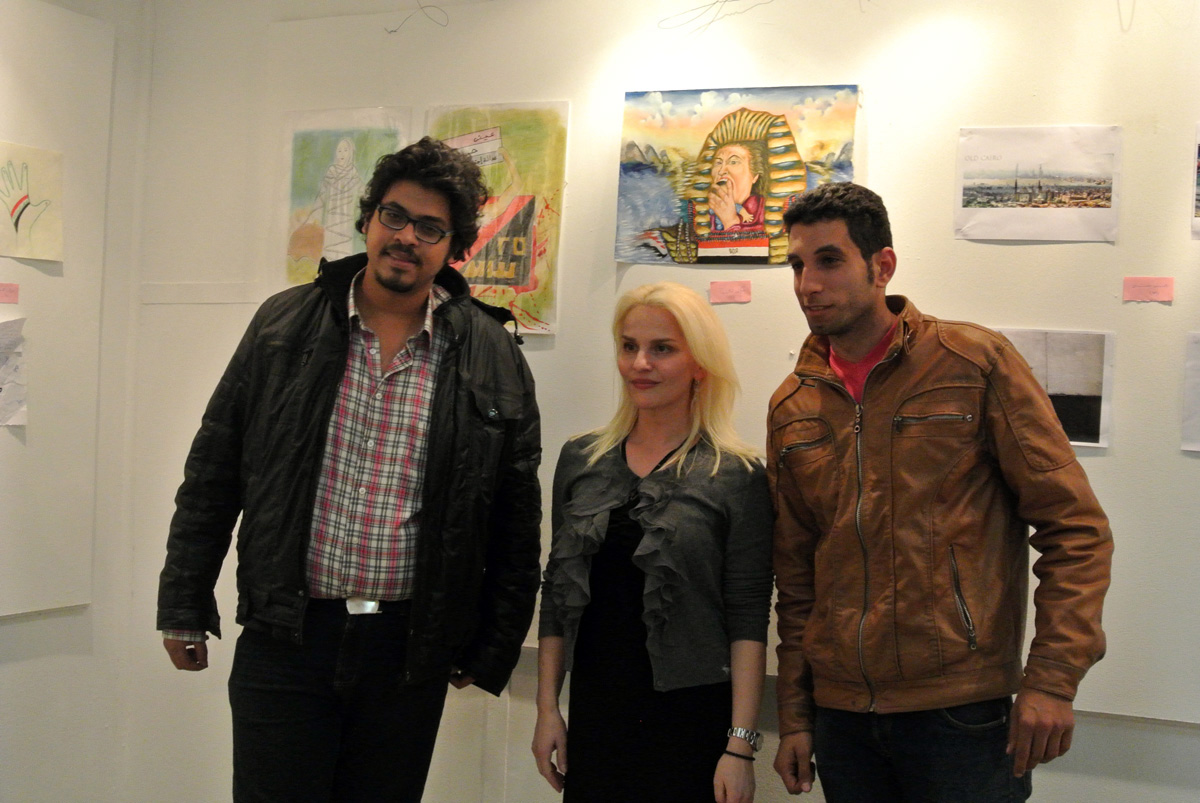Competition for the refugees: Monday, 12/10/2015
Team Baraq - with Johannes our photographer, Dominique and Jannique - fly from Saarbrücken to Cos to meet the refugees on the Greek island. In our luggage: posters, leaflets, pens and 35kg overweight. On Cos, we will take the ferry to Bodrum in Turkey. From there we will return to Cos and take a ferry to Athens. After arriving at Cos airport, we went straight to our hotel to organise the next day.
Unfortunately, we found out that the hotel was not 20 km from Cos, but almost 35 km - and it’s not that easy to get to the city by bus. Therefore, to get around, we had to hire a car.
1st day in Cos: Tuesday, 13/10/2015
After breakfast we set out on our journey right away. Unfortunately, in Germany we had not been able to organise much for the trip! Luckily, we had heard about a hotel in the news and on TV - Hotel Captain Elias. Médecins sans frontiéres were also based there. We probably wouldn’t have been able to find the hotel! What a stroke of luck!
We wandered about the streets and discovered a house that looked like a place where refugees could be. When we parked the car, Johannes wanted to have a smoke before taking a closer look at the place. That was because we had to build up our courage!
We discussed how we could approach the building and the people, and came up with the idea of putting up our posters in order to get in contact with them.
While putting up the posters, we must have unintentionally appeared quite scatty - we were being watched. A man on the first floor was watching us, looking very severely at us. However, when he saw our posters, he gave us a smile! Now, the ice had been broken. Later on, the people even helped us to put up the posters!
After putting up the first posters, we summoned up the courage and started talking to the people. We introduced ourselves, handed out our leaflets and explained, that we had come from Germany to meet them here and talk to them. We wanted to raise awareness about their situation in our blog, and invite them to our competition. They were thrilled, that someone had come from Germany explicitly to talk to them. We had swept them off their feet!
Of course, we had pencils and paper with us, as we didn’t want to make the same mistakes as in our competition for Roma and Sinti. The people in slums had been too poor and had neither pencils nor paper. That’s why, back then, such spontaneous action, as we were experiencing now, did not happen! The different family members came out of the building, one after the other. They were from Syria, but were Palestinians. They took our pencils and paper immediately. Some of them went straight back into the house and started drawing!
In a side building, we had seen a man who seemed very sad. We approached that building and asked him, whether we could enter (the buildings had a small front yard). He was very polite and friendly, said we could enter and introduced himself: he was called Mohammed. He offered us a seat and we explained our project. Of course, we invited him warmly to take part! “I will take part!” he said immediately. He said, he only had to wait for his name to appear on the noticeboard. Then he will go to Germany. This was about to happen today.
He told us about himself. He had studied at university in Syria for two semesters, computer engineering.
Mohammed is very likeable and open, and was very happy that we were there. We asked him, whether he would answer a few questions - and he answered spontaneously, yes.
1. How did you get to Cos?
“In … is my home. From Syria, I went to Lebanon, then to Mersin in Turkey and then to Bodrum. From Bodrum, we took a rubber dinghy to Greece, to Cos. The facilitator wanted more than €1,800. The most expensive part of the journey was the boat form Bodrum to Cos - more than €1,100. A normal trip is around €30. But what choice did we have! There were 45 of us on the boat, usually it takes only 10 people.”
2. Where did you get the money from?
“I sold my small business, which I ran alongside my studies.”
3. Why did you leave your country?
“Because of the war. Before the war, my family and I were well off. I studied and had my own business. My girlfriend died in an air raid. My brother? He was displaced and we still don’t know where he is. I was in prison for one month.”
4. Why? What had you done?
“wrong time, wrong place. I was completely innocent. I had done nothing wrong, and I didn’t know why they kept me in prison. Life in Syria had become unbearable. In my home country, when one turns 18 years old, people are forced to join the military. No matter whether you want or not! Some of my friends had been forced to do so. Two to three days later, they were dead. They had never used a gun before!!!”
Mohammed cried and we felt for him. We almost felt ashamed about asking him that much. But if we didn’t do so, we wouldn’t be able to understand what they were going through and comprehend why they were fleeing! “In Syria, we only have electricity for three hours per day, and water for one hour.”
5. What do you think about Putin interfering in your war?
“It is very bad for our people. It’s great for Assad, as he gets more power and strength. The Free Syrian Army wants freedom for the Syrian people. That’s what my people want.”
Who is waging war in your country?
“Al Nusra, ISIS, the Free Army, NATO, Assad and many smaller groups.”
6. Many Germans are worried about radicals entering our country.
“The fear is justified. However, there is terrorism all over the world. A small group of those coming from Syria also didn’t want to work back home. They will also not be prepared to work in Germany. Yet, the largest share of the young people want to study. They want to work! They want to achieve something in life and are therefore happy to be able to go to Germany. That’s where they see their future.”
7. How many want to become a German citizen?
“Many say they would like to get German citizenship.”
How does that feel, saying that?
“Now it feels normal, to become a German citizen. I want to become a German citizen!! There is nothing more I can expect from my home country, Syria.”
8. What does our chancellor, Angela Merkel, mean to the refugees?
“For us refugees, Angela Merkel is the mother of the nation, “the mother of hearts! You can feel that what she says comes deep from her heart.”
Mohammed is an honest, well brought up and polite young man! It would be enriching for Germany if such people came to us. At least that was the impression he made on team Baraq.
9. How was it, when you arrived in Greece?
“It was great! There were many people who helped us. I cannot complain. Not at all! We waited for two hours at the harbour and got registered.”
10. Did you have to leave your fingerprints?
“No fingerprints.”
11. Why are you not living in tents like the people by the harbour?
“We still have a bit of money and pay €20 per day for four of us. That’s ok.”
How much money have you got, Mohammed?
“€300. I hope that’s enough.”
12. At the moment, there are less refugees arriving on Cos. Do you know why?
“That’s because of the boy that was found dead on the beach in Turkey. The Turks are trying to shut off Bodrum.”
Mohammed, what do you want to tell us? What’s your message for us?
“Think about your lives!!!”
We thanked him for being so open. May god’s blessings be with him and his companions.
He said, he wanted to add something. We asked him whether he wanted to speak directly into the dictaphone. He agreed and started to speak in English.
You can listen to him here! It moved us a lot.
Baraq - Interview with Refugee Mohammed at Cos
Meanwhile, the people from the neighbouring houses had arrived with their drawings. After all of us had calmed down again, we asked Mohammed to help us talk to a Palestinian neighbour. Without batting an eyelid he interpreted for us! We asked for the names of the kids who drew the pictures, and wrote them down.
A woman told us, that they came from a camp in Syria and they were Palestinians. “We had never left the camp, have never seen Palestine.” Another woman said the Syrian police had hit her on the head. And she stressed that the stitches were 8-10 cm long. We asked whether we could get medicine for her. We thought it couldn’t be too expensive. But far off!
She said that no matter where someone comes from, from which country or which region - one doesn’t hit others on the head.
“We don’t have anything against Jews, but against the state of Israel. We were there first. The expelled us from our country.” They have no hope for peace. “Nothing will change!”
We asked Mohammed to come to town with us and interpret for us. He agreed and thanked us, that he was able to help us.
We decided to take Mohammed directly into our team Baraq. We went to town, straight to the harbour where refugees were arriving in their rubber dinghies, arriving from their “death trip”. That’s what Mohammed called it. He also showed us the boat in which he had arrived (in grey colour).
It was very moving to hear such a story from someone who had experienced it. As we wanted to take some pictures, we went through a gate by the harbour. What we saw there made us really sad. We felt that people didn’t like us taking photographs here.
There was tension in the air, fear of getting caught. We were almost done. We wanted to document that there were different prices for each life jacket.
It happened as it had to. Suddenly, the police were there and we feared we would have to hand in our camera. Luckily, we didn’t have to. We were chased away and watched until we had left. We left without arguing, as we had filmed everything and taken enough pictures. We were lucky to be able to record this tragic situation authentically. We were able to document these intense feelings beyond words, and got a glimpse of what suffering must have occurred. One of our team said: “Seeing all of that makes me realise that my sorrows are minimal, even though they sometimes keep me awake at night.” I think everyone in our team felt like that. We left the harbour area.
Mohammed was a great help! Because of him, the refugees were even more open. He also took us to the exit where the list of names of those who would be able to take a boat to Athens hung, and from there via the Balkans to Germany. He looked for his name, as he was supposed to leave the next day. However, his name was not on the list. Mohammed took us to the park, where refugees go if they need medical care.
There, we handed out our leaflets. We met great, open, dynamic, friendly and hopeful young people. A young man from a group of Syrians told us, he was a photographer and showed us pictures on his mobile. We were really impressed and asked him to join our competition immediately. When we asked him, which country he wanted to go to. He replied “to Switzerland”.
There was a great atmosphere and one had the feeling that the volunteers on Cos were doing their best! Unfortunately, we also sensed the atmosphere among the people from Pakistan, Iraq or Afghanistan being more sorrowful. We will get back to that later!
After we had handed out many leaflets, we took Mohammed back to where he was staying.
As time was short and we had to return our car, we arranged to meet him again the next day at noon for lunch. Mohammed was very happy that we would return the next day and thanked us again for helping us. Now, we also went to our hotel, packed with so many impressions. What an insightful day for us!!
Wednesday, 13/10/2015
We left at 11 am, to make sure that we would get to Mohammed in time. When we arrived, he showed us the piece of paper with his name on the list. He said his boat was leaving at 7 pm. He had packed and all prepared. When we arrived in the restaurant, we asked him whether he was scared about the long journey. He said he was looking forward to arriving in Germany.
He told us that a friend had said to him in Bodrum in Turkey: “You will meet people in Greece who will be good and help you!”
He had replied: “Who is gonna help me?” He stressed that now, while he was sitting in front of us, he knew that his friend had been right! We also want to support him when he is in Germany!
Our photographer Johannes showed him everything you need in Germany: ID card, insurance card, drivers licence, cash card. We were simply happy to be together, without asking many questions.
We took Mohammed back home. We asked him, whether he had time to go to the Palestinian family with us and interpret for us. We would really like to know about the meaning of the picture they had drawn the previous day. Mohammed was very happy to help us! We recorded what the kids and teens said for you:
Later on we were asked to go to the pharmacy again to buy medicine for the scar on the woman’s head, as they were not able to buy medicine. Of course we agreed immediately. Dominique and Jannique went to get the medicine. Johannes stayed with Mohammed and talked to the man who had watched us sceptically at the beginning. He opened up more and more and told Johannes that the Islamic State wanted to chop his arm off. It was impossible to stay there. One of the women said that her mother was still in the camp and she definitely wanted to take her to Germany.
In the meantime, we had arrived back. Unfortunately, the pharmacy had been closed. But we didn’t want to give up! Johannes, Mohammed, Dominique and Jannique drove off again and, after searching for quite some time, found a pharmacy. There we found out that the required medicine had to be prescribed. We searched for the pharmacy where we had got the medicine the previous day, as they had turned a blind eye. However, this pharmacy was also closed!
After wandering around for quite some time, we found hotel Captain Elias by chance - it’s known from the news and TV. Médecins sans frontiéres were also based there. When we got out of the car, we found chaos. Vandalised and full of rubbish. The hotel had been closed.
Mohammed followed Johannes into the building, as he didn’t want to let him enter on his own. What we saw made us wonder what those people had experienced and how they are today. So many destinies are en route. Our feeling at that moment can not be described. Sometimes it takes weeks before such feelings can be expressed at all.
Suddenly, we had an idea! What if the police arrived, arrested Mohammed for unlawful entry and then he wouldn’t be able to leave the country today? We asked him immediately to go out of the building and sit in the car, so that he wouldn’t be involved.
Even with that danger in mind, he didn’t want to leave Johannes alone. We explained to him, that this was too dangerous for him and drove him home. We said goodbye and agreed that he would keep us up to date on his journey.
Bodrum, Wednesday, 14/10/2015
In the morning, we went straight to the harbour, to Bodrum in Turkey. A tourist guide told us that many refugees hide during daytime because of the tourists. Only in the evening they can move about freely. She said that is wasn’t like in Cos.
When we arrived at the harbour, we didn’t see one single refugee. Mohammed had called his friend, a refugee who is staying at the harbour. We asked him to help us here in Bodrum. Unfortunately he declined as it was too dangerous for him. Of course, we fully understood.
He gave us some advice which we followed. As the refugees are usually staying quite a bit away from the harbour, it took us a while to find them. Most of them come from Pakistan and Afghanistan. One can’t compare the atmosphere to Cos. The refugees there were a lot more free and open. Compared to this, the situation for them is better there. Here, they lie on the dirty floor, like a carcass, beneath human dignity.
We met a seller who spoke German. He told us the refugees spend the day further up because of the heat. We had heard that the police were hiding refugees during the day and asked the seller about this. He said no and explained that the refugees sleep in the market hall. They arrive in the evening when the market for fruit and vegetables closes. We asked him whether sales for him went down because of the refugees. He said yes, down by 50 to 60%. People don’t want to go shopping when they see so much hardship.
With an uneasy feeling we put up our posters in the market hall. Luckily everything went well. While handing out our leaflets, we met a refugee from Pakistan who spoke English. We asked him to give the leaflets to the people from his country and explain our project to them. He told us his story. All very sad. You can listen to it yourself.
At the beginning of the conversation, we experienced a strong man - who towards the end broke down. He said it was incredibly hard, especially leaving their women and children behind. They are convinced that they will be able to make a better life for themselves in Europe and can get their families to join them. That’s what drives many of them! They don’t take the family with them because of the fear of starvation or drowning on the way. Some believe they are terrorists because they arrive alone.
We carried on with our search and met people who helped us putting up the posters. Suddenly there were some young people, refugees, and they wanted to have a photo taken with us. That was a short moment of joy! We wished to be rich and to be able to reduce their suffering. A feeling of being powerless spread, a drop in the ocean, nothing more.
However, this doesn’t stop our team helping within a small compass! It is the feeling of not being totally alone, which gives esteem and devotion.
Our time ran out and we set of again toward the harbour. At the end of our first day we realised that our leaflet was a Kurdish translation. That's quite something! To hand out a leaflet in Turkey, but not printed in Turkish but Kurdish, is quite something.
Now, we are off to Cos. And from Cos, we will take an overnight ferry to Athens at 8 pm. It is a big boat for almost 3,000 people.
Today, there will also be refugees on board, who will travel on from Athens (we will get back to that later). The refugees have to wait behind a gate, just like second class citizens. First, the paying passengers, then the refugees.
The atmosphere on board was really good! We met familiar faces and took pictures. After all these impressions we were quite exhausted. Our photographer Johannes remained on deck for some time to take up the atmosphere and take pictures.
Athena, Thursday, 15/10/2015
At 6 am, we arrived at Athens harbour. There we took a taxi to be back at the harbour at 4:30 pm at the latest. We wanted to get straight to the park “Pedion Areos”. Apparently a big refugee camp had been established there, known from TV and media.
We were surprised when the taxi driver asked us several times if we really wanted to go there.
During the journey, we saw great poverty and a lot of poor people, just waking up and pushing all their belongings in a shopping trolley in front of them. Countless people were lying on the streets, noticeable drug use and alcoholism. The buildings are run down, too. When we arrived at the park, we realised why the driver had asked us several times.
No sign of refugees!
The report had only been published three weeks ago. However, what we experienced were junkies and homeless people, maximum poverty! We hesitated for a moment, wondering whether we wanted to walk through that, as there was danger in the air. But what other option did we have. We walked through the park, talking to people who were on their way to Victoria Square. Well, let’s go to Victoria Square!
As our time was very limited, we took another taxi. When we arrived at Victoria Square, we saw that this was the right place for us to be! First we went into a café to have a bite to eat. One can’t just approach the people. One has to build up some inner strength and that’s not easy on an empty stomach. We saw more and more refugees arriving.
We had a look around. Every one of us had got an ice cream in a bakery which we gave to three kids. We should have known that more children would approach us! And that’s exactly what happened. We counted how many kids there were and got an ice cream for each of them. Meanwhile, the people started to be more open. A father had a child without shoes on his arm, and said “shoes, no shoes”. We thought about what we could do, so we stopped our work and went shopping for socks and shoes with the man and his child. The child was so happy! And that also made us very happy. The father was very proud as he had carried his child the whole time. It would have been to dangerous walking around without shoes.
The people were watching us closely. First they were reserved, but seemed to feel that we respected them. That’s when their need become clear, as they get the courage to ask for some things. A friend is born to be a brother when he is needed. Now it was really kicking off. We took our crayons and paper out and gave them to the children. With such small treats we could touch so many hearts. So many happy children. Watch the video and you can see it.
Some kids started drawing right away. Drawing is very important for children as they can express what they experienced and their sorrows in a picture. It’s a kind of release and means of communication.
Surely Faber Kastell and Pelikan would have been pleased to see how happy the children were about the crayons. However, neither Faber Kastell nor Pelikan had wanted to support us. And it is as simple as that. In a €1 shop, we bought Faber Kastell crayons for 1€. For Baraq it makes a big difference whether we pay one euro, or two, or three. We wanted crayons of good quality, as it is no use when the crayons brake right away.
The saying goes: Where there’s a will, there’s a way. However, we experienced neither good will, nor had a way proposed.
Let’s get back to what is important. But you probably realise, crayons have become an emotional topic for us. To be honest, we are still offended! Suddenly there was a cry from the crowd! We met four boys who we knew from Cos. They were very pleased to see us again. Some selfies were taken for them and their friends at home. We wished them all the best for their journey and befriended them on facebook.
Unfortunately we heard that they had become separated and one of the boys was now on his own. They were travelling via the Balkans. There were to many people so they became separated. That’s very sad. We experienced that the refugees need each other. Especially young people form groups to be able to bear the situation. Now in Germany, we are also in contact with them. We will tell you more about that later on.
Johannes met Peter at the square. Peter is an architect form Poland. He has been in Athens for some days and was interested in the architecture in Athens and the local buildings including the refugees. For a short period of time, we had a tour guide. He took us to a square full of posters, where people expressed their thoughts about politics. We also put up our posters there.
Then he took us to an occupied building. An association had occupied it for the refugees. There they can spend time, rest and sleep. And they get clothes and other things they need. The people were very friendly and nice. We were able to leave some of our leaflets there and they would distribute them. That was great!!
Now we went through Athens and put up our posters. We didn’t feel as uneasy as in Turkey. In Greece we felt very comfortable.
Our journey back was quite boring, because the boat was almost empty. The night was very stormy, and one of our team said they had never prayed that much before.
Cos, Friday, 16/10/2015
Our journey back was quite boring, because the boat was almost empty. The night was very stormy, and one of our team said they had never prayed that much before. 5:20 am, thank god, we arrived in Cos. We wandered through town for a while. It was very quite. No café was open yet. We asked a taxi driver how much he would charge for taking us to our hotel. We knew how much it was, but hoped to be able to bargain a little. €40 was his price, no chance of negotiating. As the taxi driver was so persistent, we refused and decided to rent a car, which cost between €35 and €45. So we waited until the rental place opened up, as otherswise we would have had to sit in our hotel all day long, not being mobile. Our time was too precious for that.
When we got to the hotel, we had breakfast, rested a bit to recover from our journey and then drove back to Cos. We were looking for an association called “Cos Solidarity”. A relief organisation had recommended contacting them. Johannes surprises us, time and again, with his excellent sense of direction. He also found the association very quickly. The association warmly welcomed us and we introduced our project. The people were delighted! No one said it was stupid what we were doing. Quite the opposite: the young people were impressed and very keen on our project.
It was a great experience to be made to feel so welcome even in such a difficult situation. Cos Solidarity’s volunteers have a lot of work. They are one of the first associations on site and have supported the refugees from the beginning. Our team Baraq could only thank them cordially. Thank you for being on site, for reducing the refugee’s suffering. Thanks!
Some said that the government had done nothing, of course, apart from registering the refugees. When it comes to food or other needs, it is only the volunteers who help. “What happens with our money?” We were told, that there are now many groups (associations) who want to gain laurels. They were nowhere to be seen, when 7,000 refugees were there! Naively we asked why they were currently present and got the response, it was all about money, about donations. The topic refugees was a business for busybodies and the ruthless.
They had to get off to distribute food. We asked politely whether we could come. They invited us to join them. The food distribution would start at midnight at the harbour. They asked us if we had a car. Luckily we had decided against taking the taxi in the morning! Now we were able to help patrolling and receive the refugees arriving in the harbour. Wow! That’s what we thought. We were part of it!
We were scared, but overcame our fear. On some of our journeys we had to learn to deal with our fear. We believe that the fear wants to be the master. However, when one masters the fear, one is a winner! Such a great feeling. One grows a bit stronger and braver. We wanted to share our feelings with you, to let you know that this is also not always easy for us. We also have to pluck up courage to organise this or other projects.
We went back to the hotel to at least get a bit of rest for an hour or two. But we couldn’t rest. We were too excited. We left at 11 pm to be at Cos harbour 45 minutes later. The association Cos Solidarity works there in rotating shifts until 8 am.
It started at around one o’clock in the morning. Team Baraq followed a convoy along the coast. Every here and there we got out of the cars, waited and looked out. Then, someone from the association said, it seems that no one was arriving, even though the sea was very calm. We drove on, got out of the cars, looked out to the sea, and suddenly a man appeared out of the darkness. A volunteer walked towards him. The man was soaking wet. The volunteer gave the man a hug and said “Welcome!”. He also asked, whether there were more people. With a shaking voice he replied in English “yes!”. “Are there children with you?” - “Yes, many children.” He was told to call everyone, they were safe! Suddenly many mothers appeared, wet from head to toe, and all of them happy to be alive. Blankets and drinks were distributed.
We wanted to take pictures, so they could send them home, to prove they had arrived alive. It was really incredible to see how happy these people were, that they and their families and wives were on firm ground again. Some of them were truly in shock. Their legs were shaking with cold and fear. They were overwhelmed with joy. You can see that on the video.
Baraq - Arrival of Refugees out of the Sea at Cos
That night, we were lucky that everyone was alive. Three days ago, three children and several adults had not survived the trip to a neighbouring island. We felt the scope of the situation, the hardship the people had to go through. Suffering. That’s why we wanted to be directly on site, to feel that and share it with you.
Of course, we now understand even better. In the meantime, more cars had arrived to take the people directly to the harbour. Others were waiting there to support the new arrivals, providing fresh clothes, drinks and food. That night, we met nobody from the authorities offering shelter. Everything was organised by the association Cos Solidarity. With dry clothes, supplies and warm words. Parents and their little children were taken to hotels; men had to sleep in tents. Cos Solidarity even has a small team of people who play with the kids as soon as they are dry. They want take their mind of the situation and experience something joyful. They are doing a great job.
Despite the people’s joy to be alive, the situation is incredible. One doesn’t really realise what is happening. People and their children, risking their lives in a rubber boat on the ocean. Life at home must have become unbearable if this is the last resort. Death or Life. When everybody had been taken care of, we sat together in a small group. It was 4:30 am.
One of the volunteers thanked us for being with them that night and starting our project. He told us to carry on, and not get discouraged by anyone. Although it was him and his group who deserved such praise! He said, he was modest. And such projects were important. I explained that people in Germany asked us what we wanted with the refugees and our competition. They had other problems. Sounds logical.
But quite the opposite! The refugees here on Cos, in Bodrum and Athens were very happy about our project. We stressed that we came from Germany explicitly to talk to them and outline the importance of dialogue. We only got positive responses, open and kind young people who were happy to be asked to join our competition. Some of them were truly enthusiastic. We told them, that we had been in Cairo in 2012. We had met the young people there and called our for the competition all over Egypt. The youths were extremely happy that someone had come from Germany for them and that the rest of the world hadn’t forgotten them.
Many young people from different nations come to support this association. We only joined them once. The people here have supported this project for months, day after day, night after night. We thanked them and said goodbye. The whole group, including us, was exhausted. It was our last night in Cos. Tomorrow we’ll travel back to Germany.
In any case, Baraq has found a new association which we will support through you, with the donations from the t-shirts sold.
Baraq’s aim is to be on air as soon as possible. On our next trip we want a cameraman with us to be able to broadcast live.
We are sorry that the quality of our videos might not be that great. It’s a shame. As we finance everything privately, our budget also has a limit. We are doing our best to become better for you, as we wish to bring you very close to our projects.
That only works with speediness and better technology. We’re sure we’ll be able to make it!
You know, after such eventful days we are totally exhausted in the evening and can not write any more. That’s why we hope to have someone with us who focuses on writing everything down.
That would be a dream. We know that more is possible!
The conclusion is: this experience is priceless. We experienced that if you meet others with love, their hearts open up. We met people that night patrolling along the ocean who were so incredibly happy to still be alive. These are moments which we will never forget.
We could learn again how important it is to talk to each other, invest time and give courage. These people shared their experiences with us, showed true emotion, pain and gave us trust. Thank you to all of you we have met. We will continue writing about one of them or another. At the moment we can’t as it would put them in danger. The procedure in Germany was an awful experience for some of them. Unbelievable. We’re still in contact with three people and meet them in the camp in Germany.





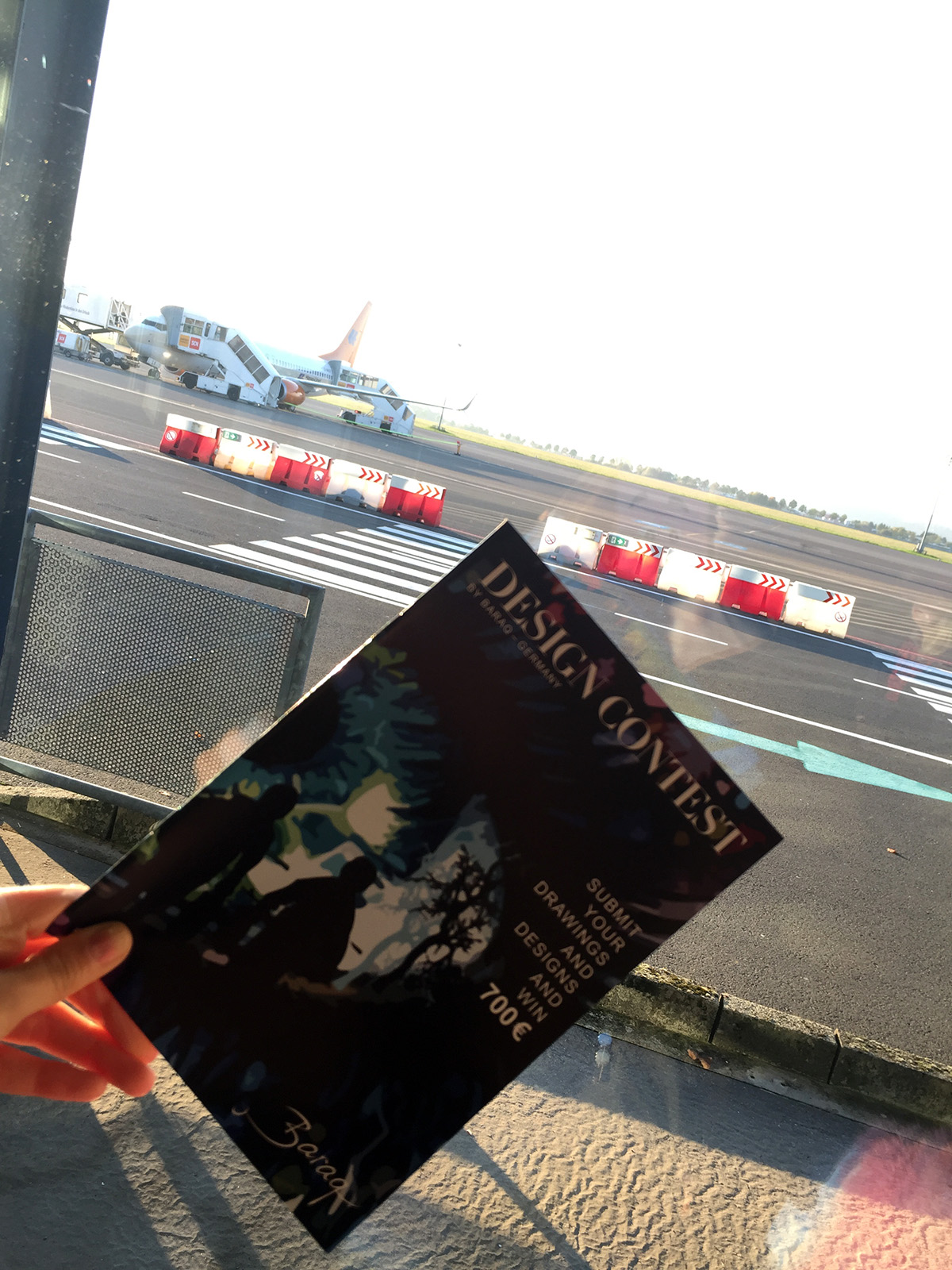
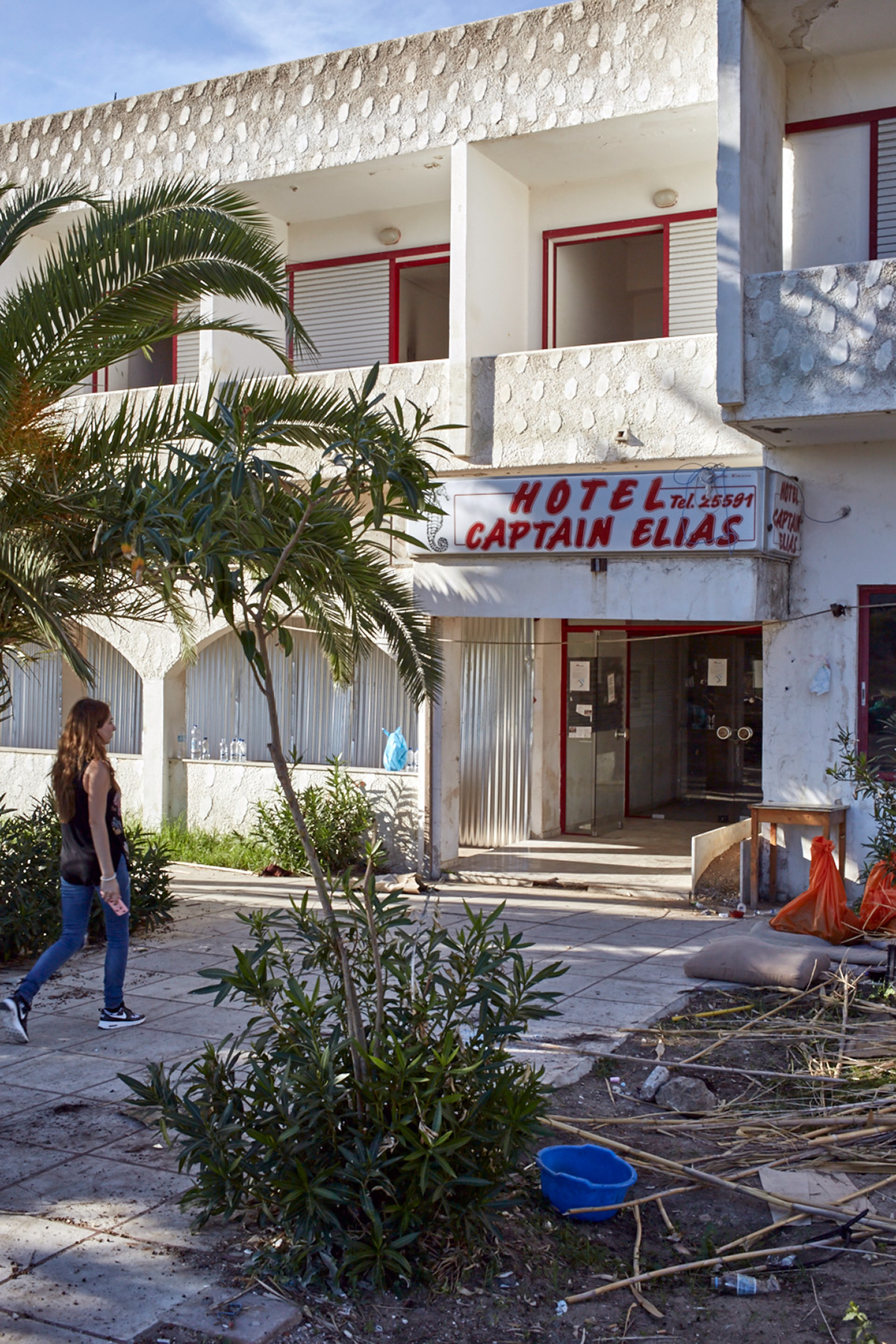
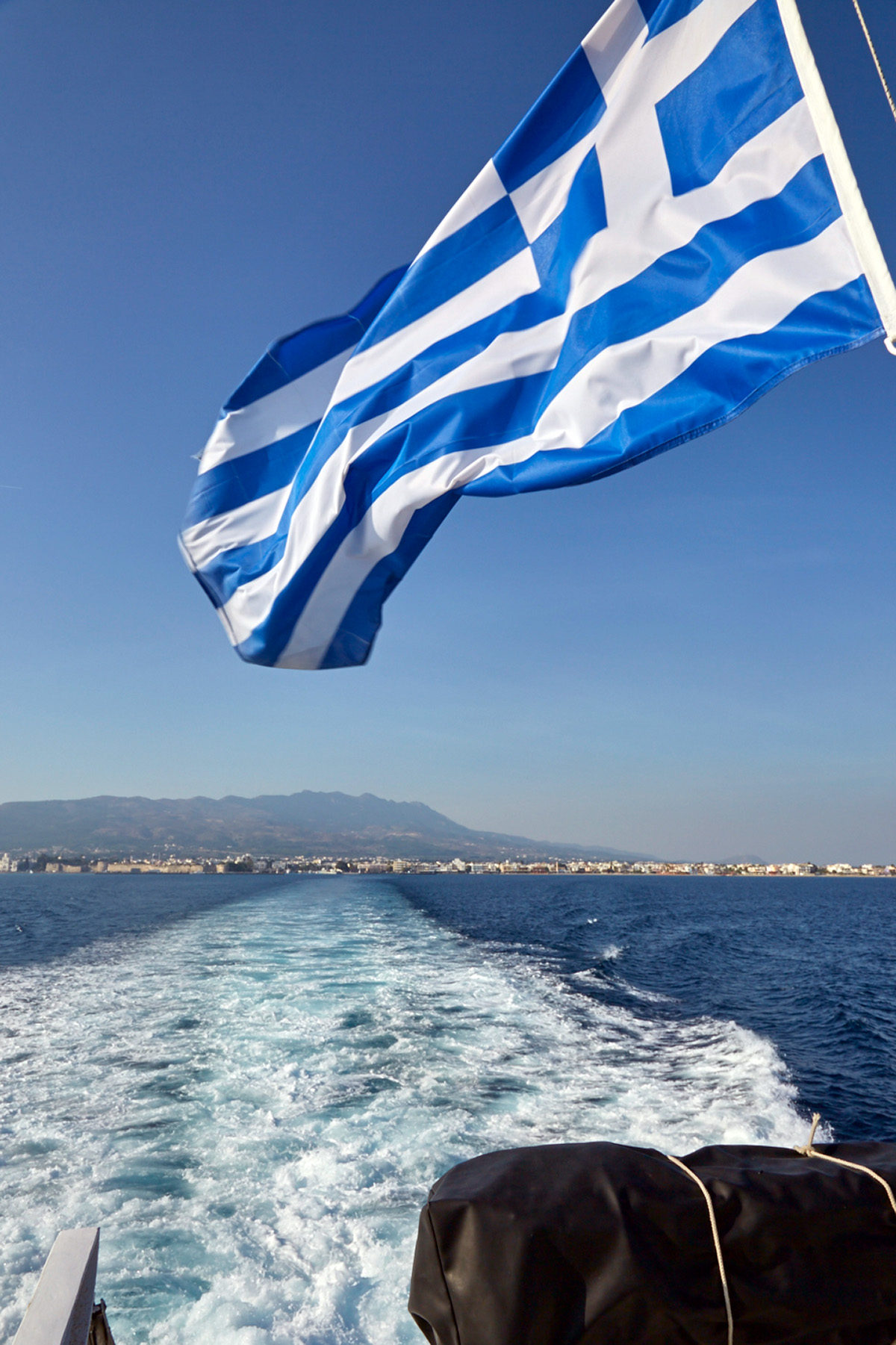
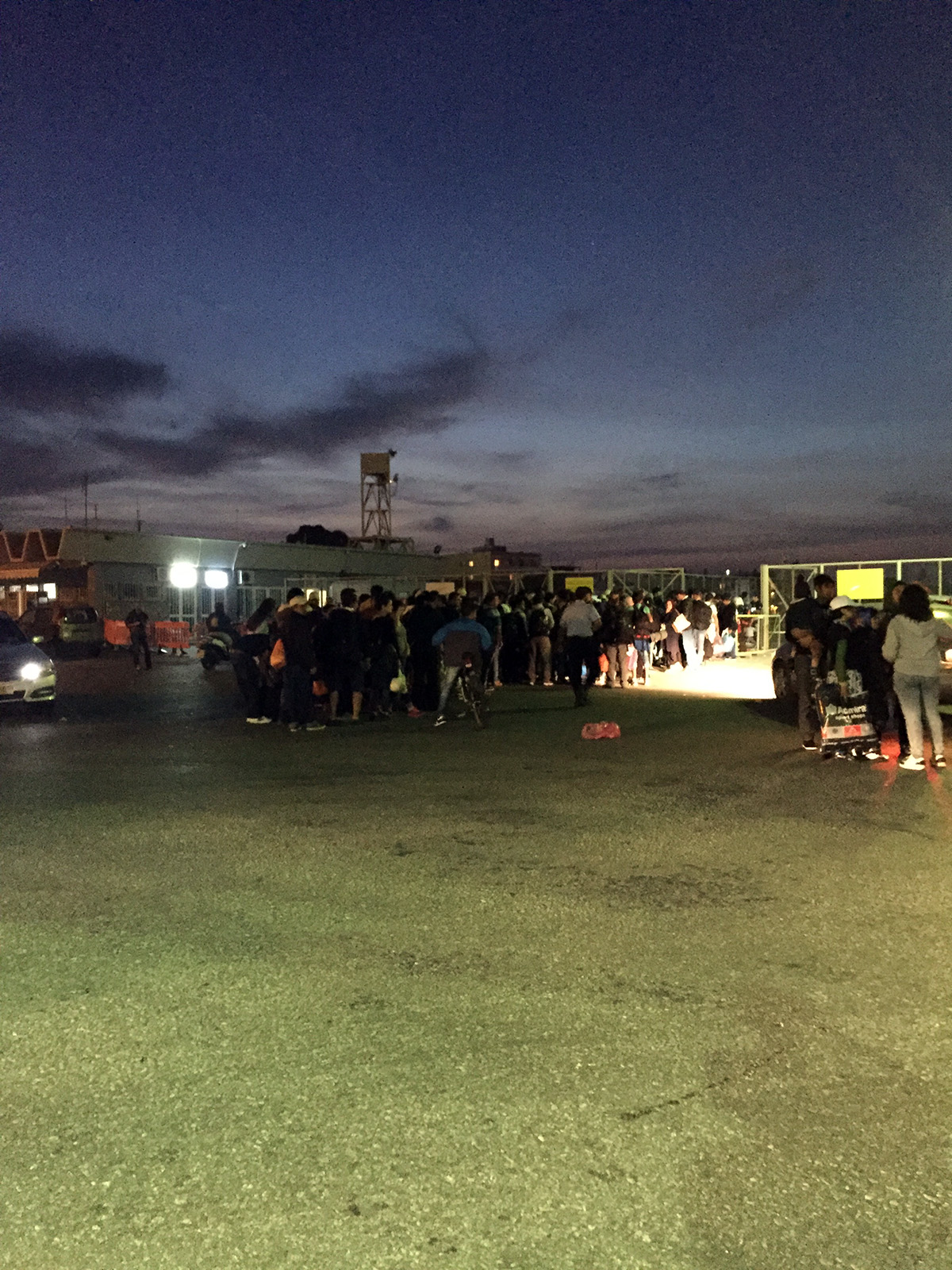
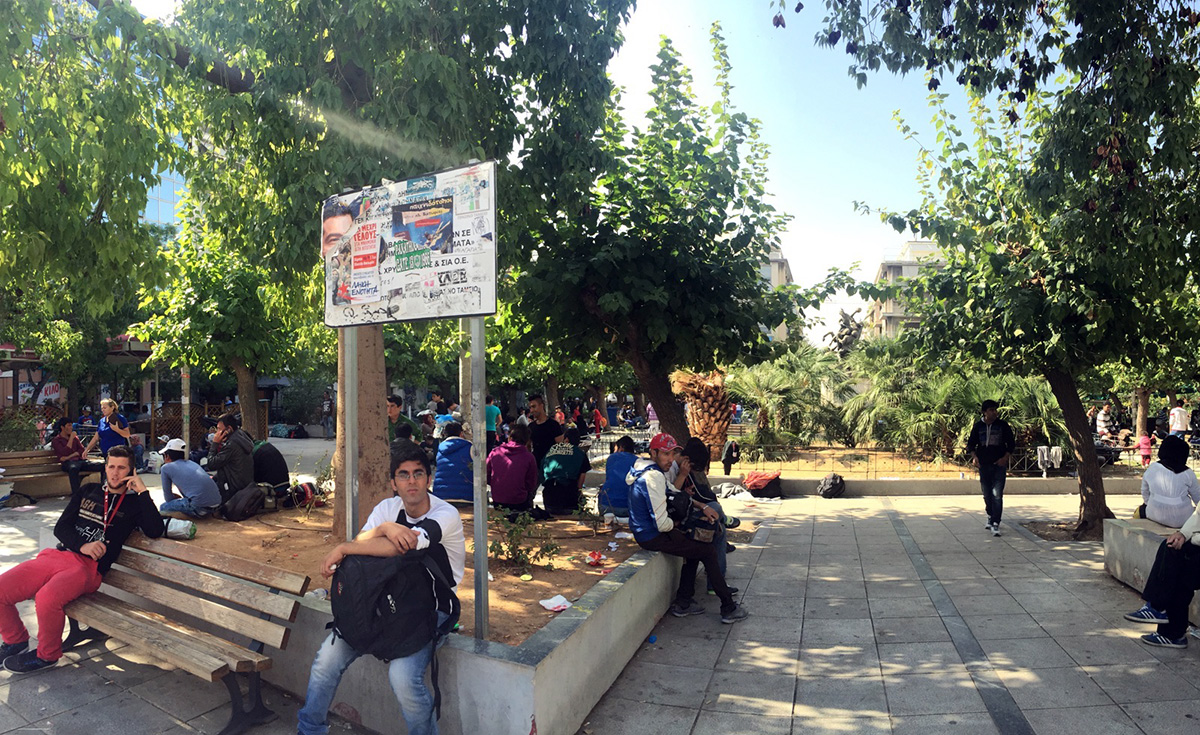
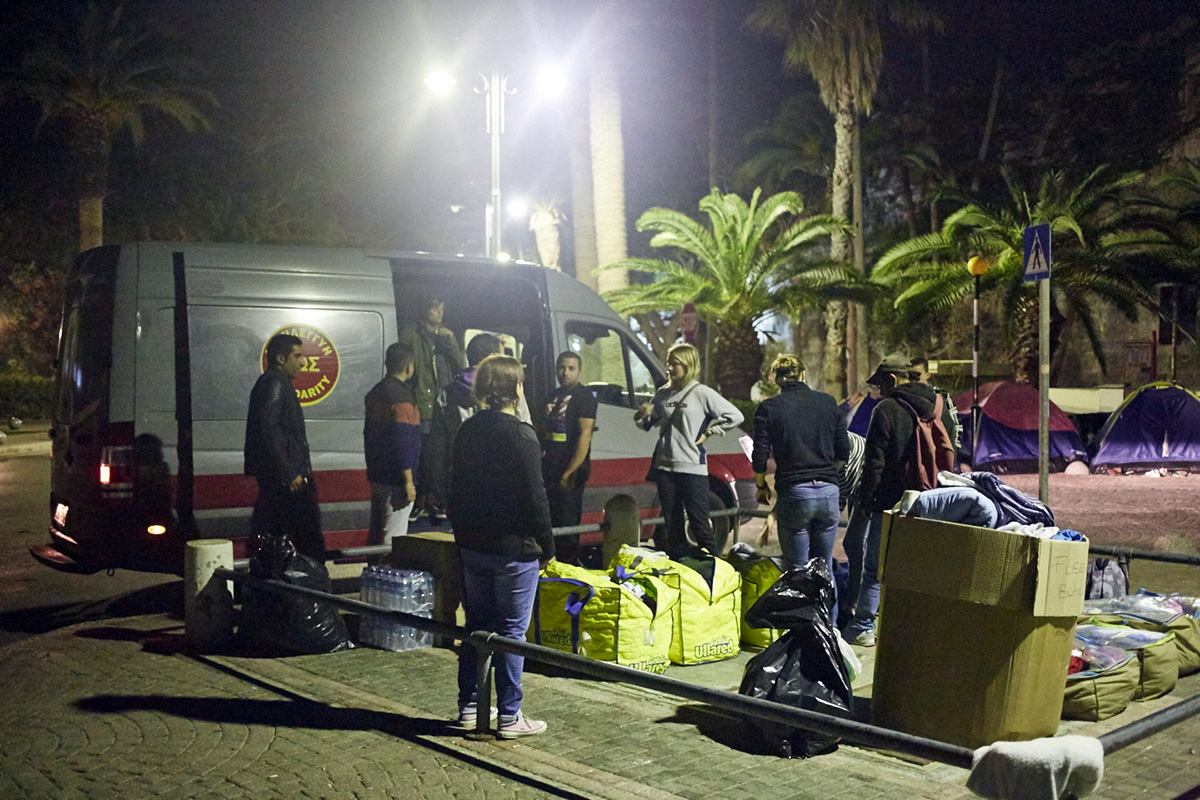
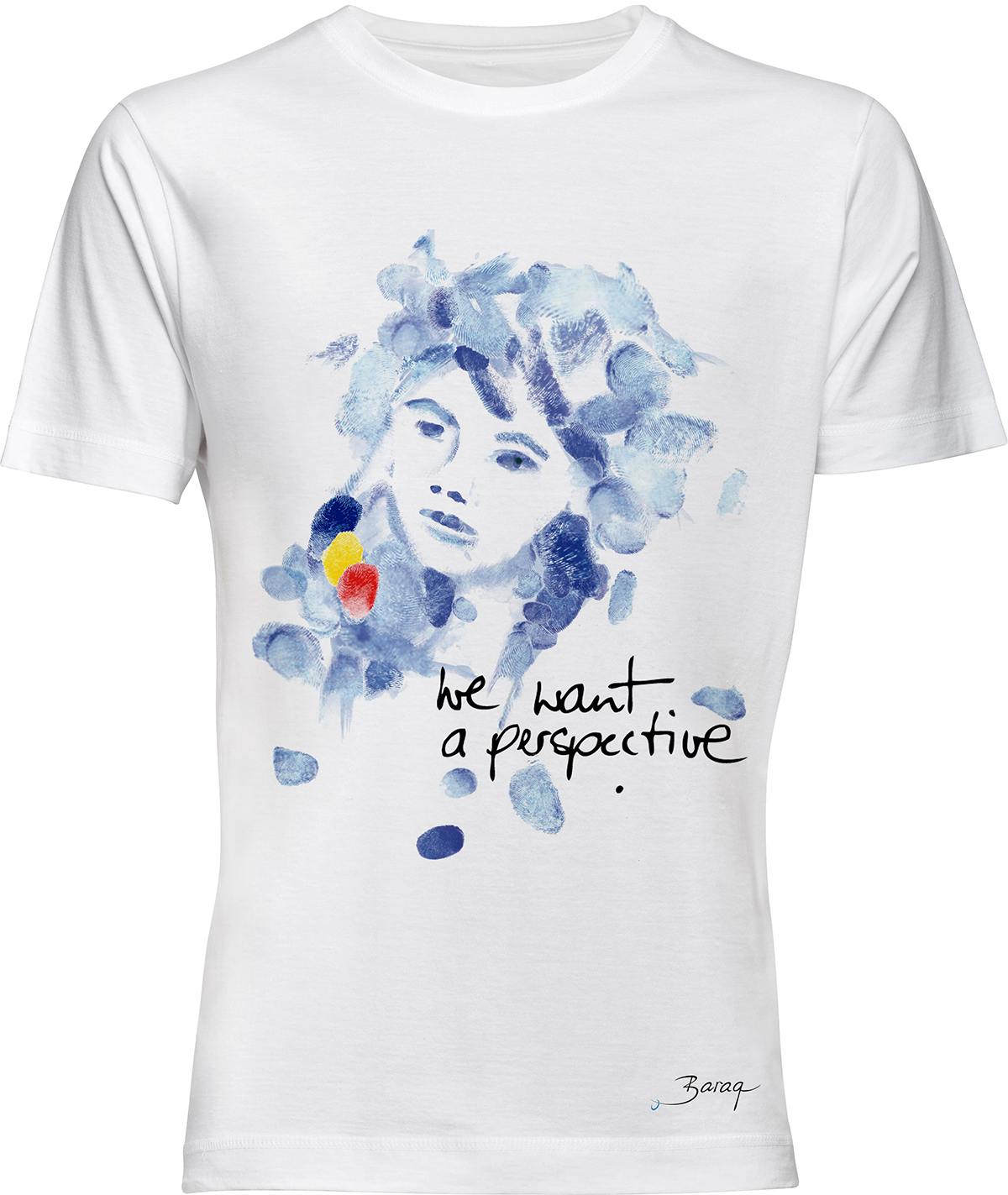
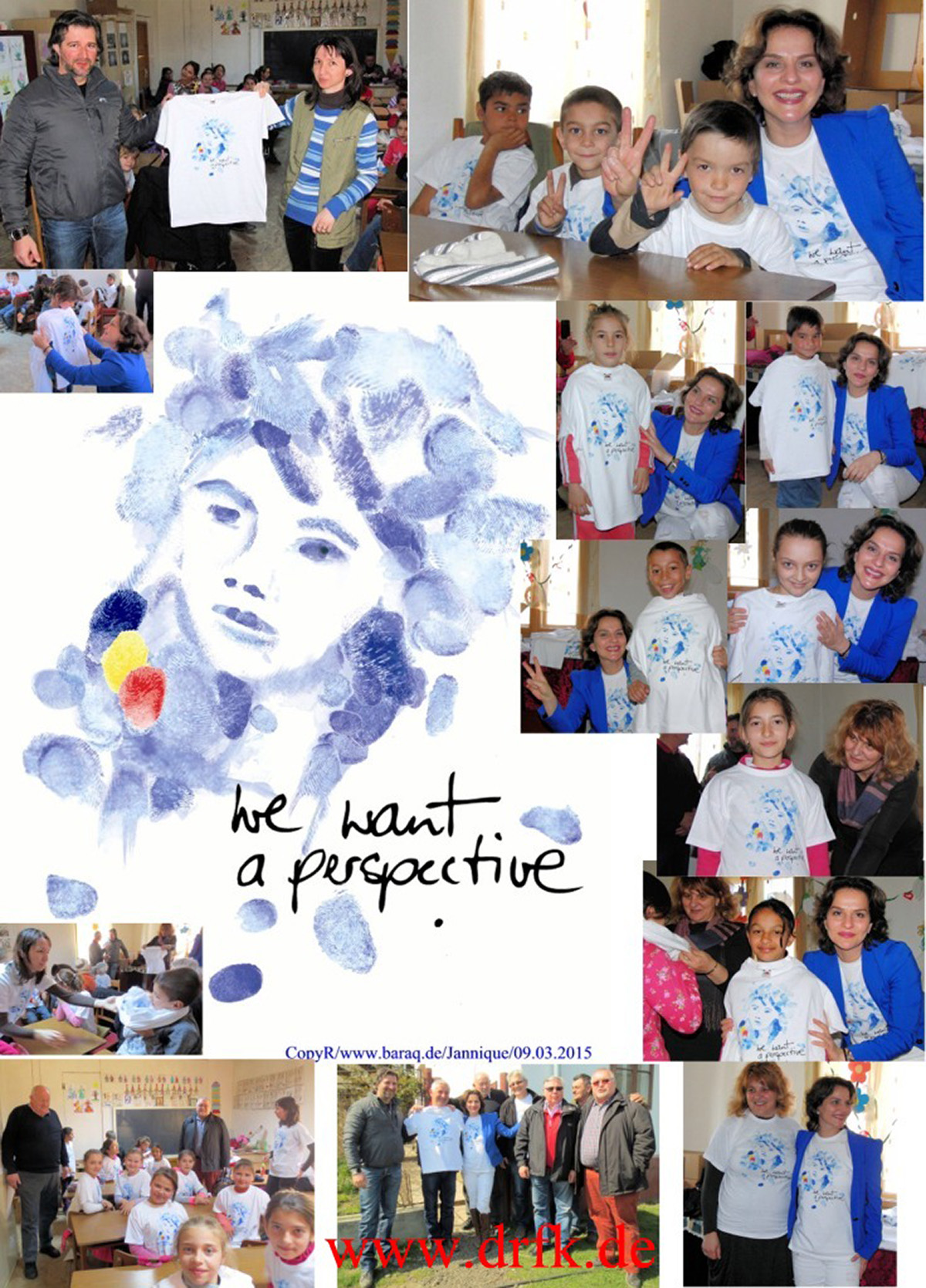
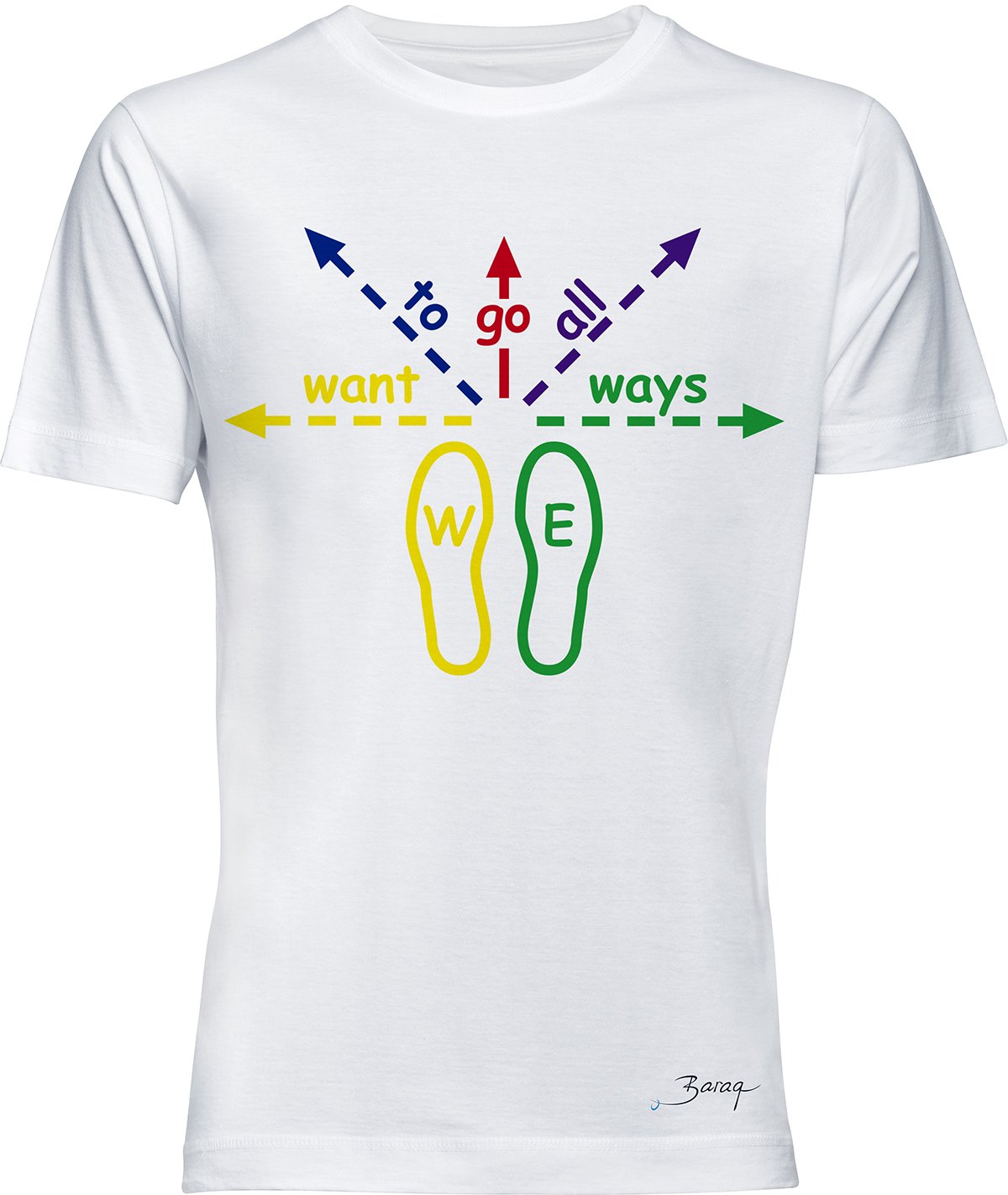
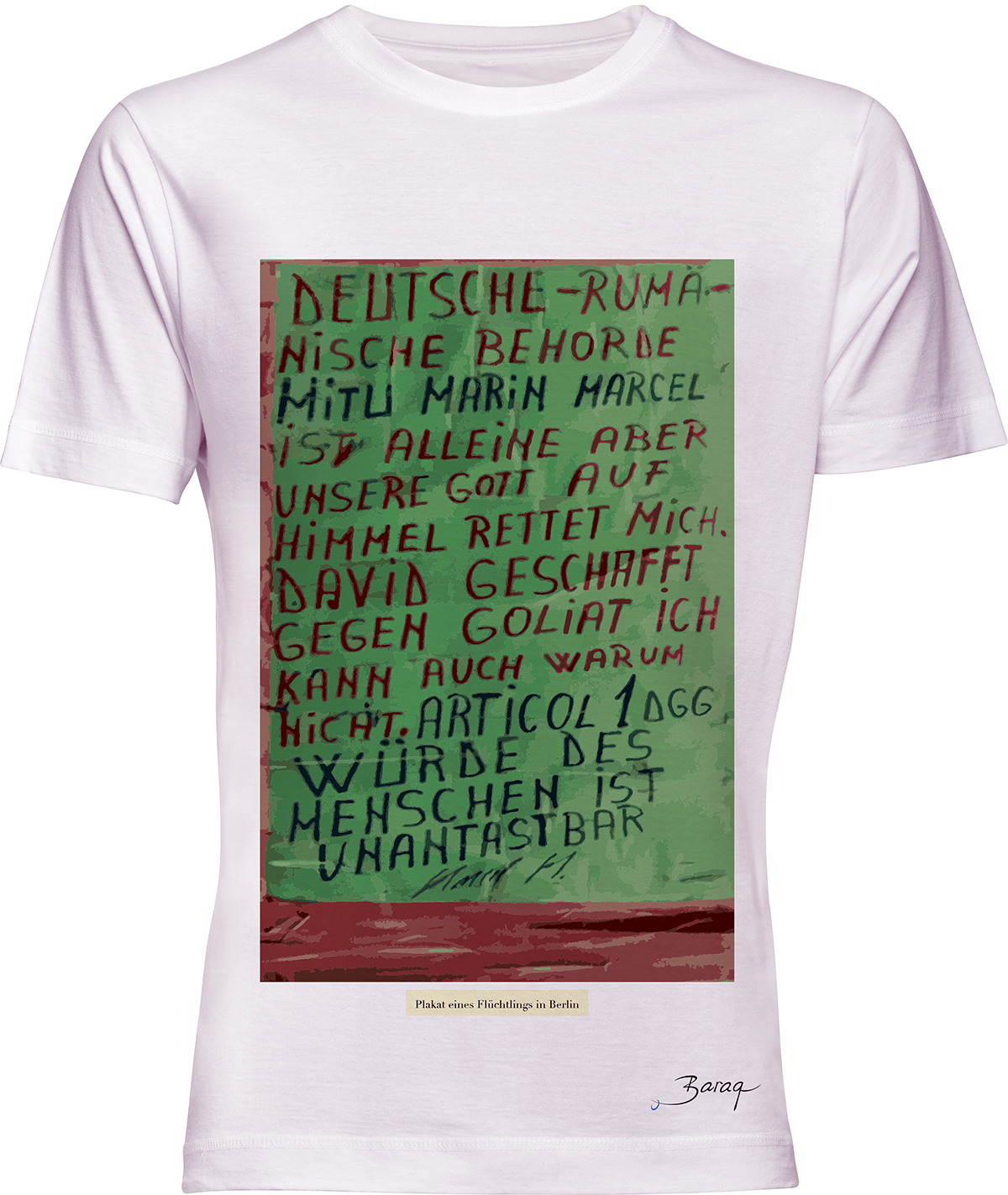
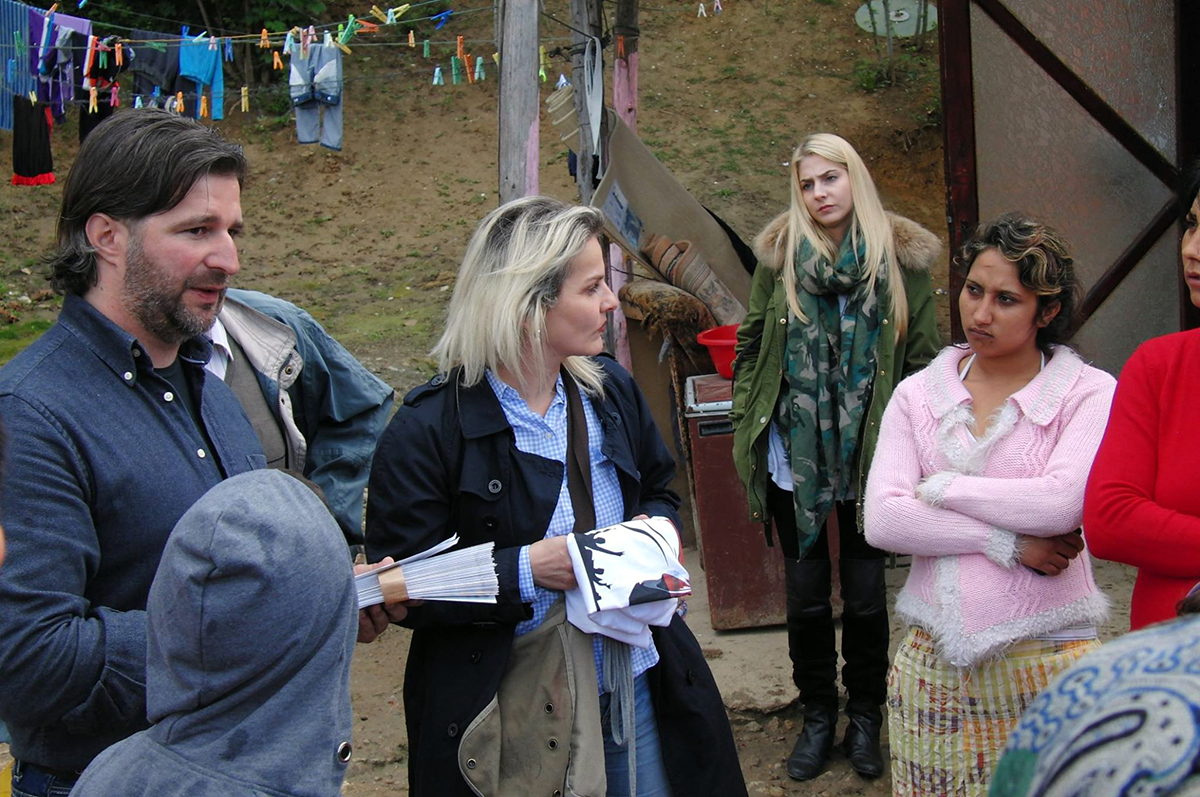
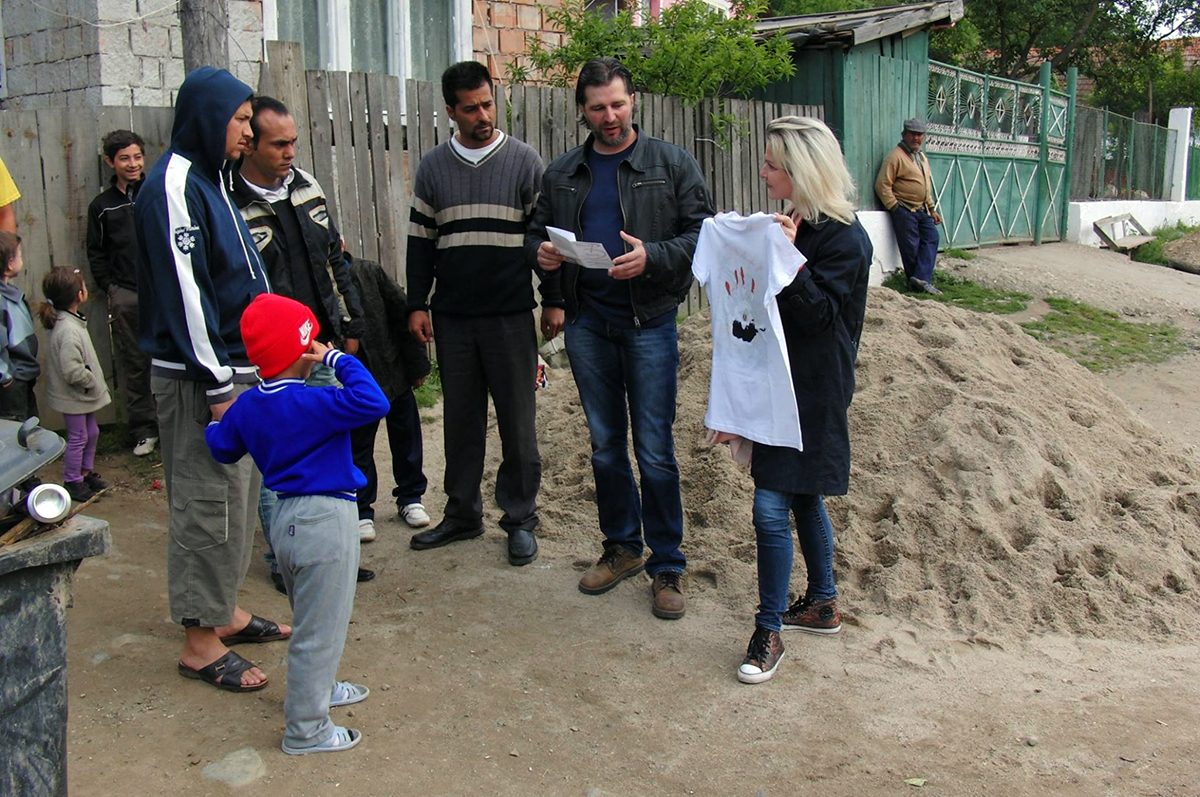
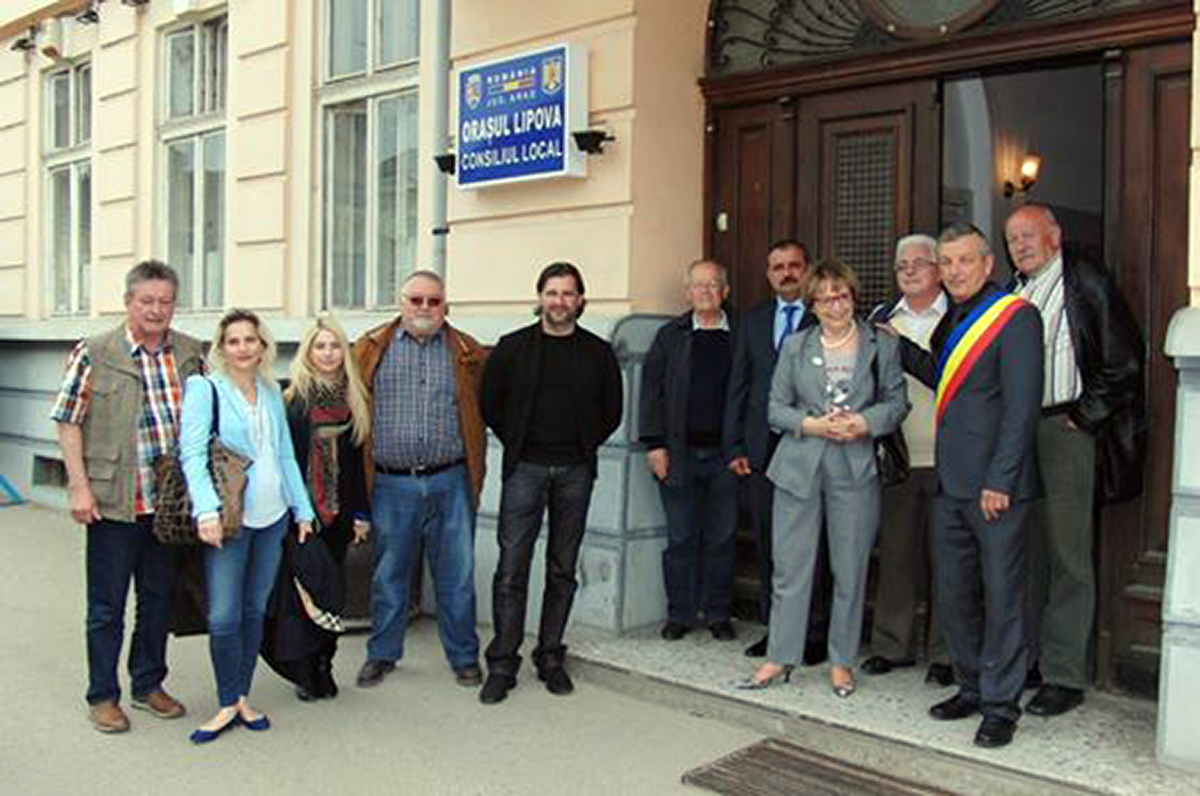
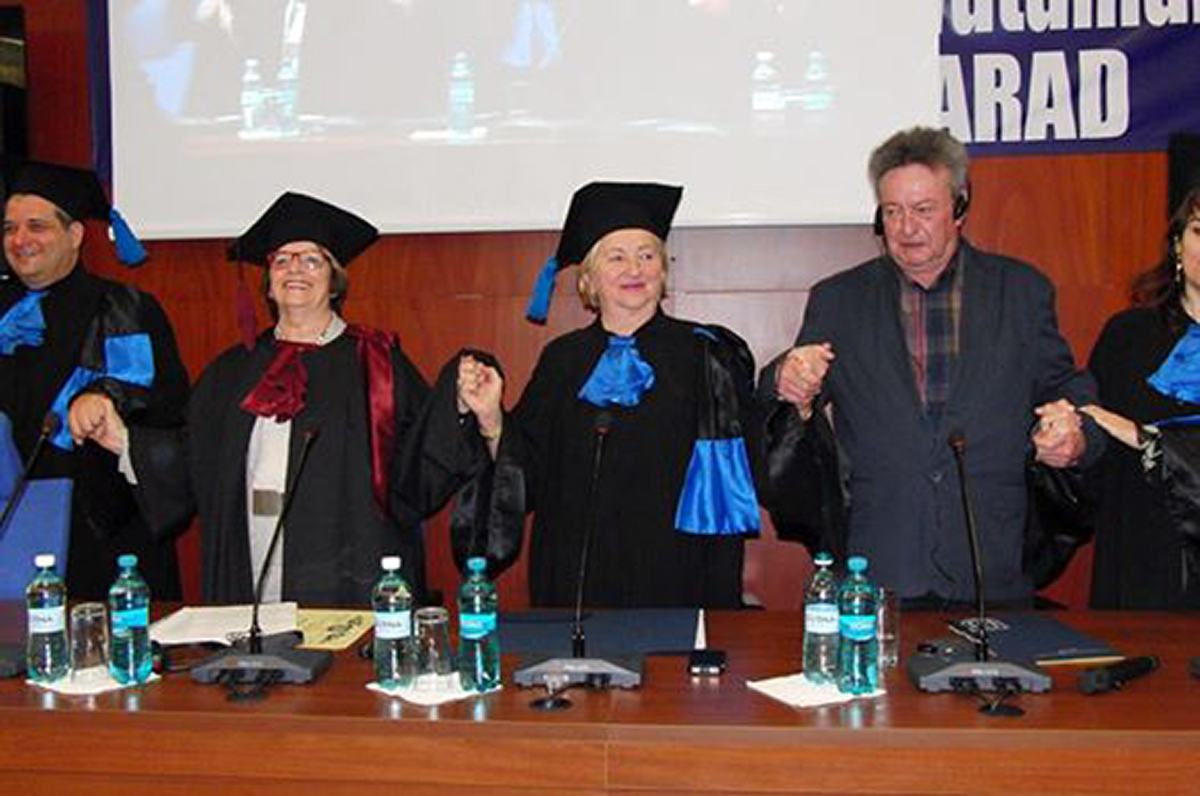
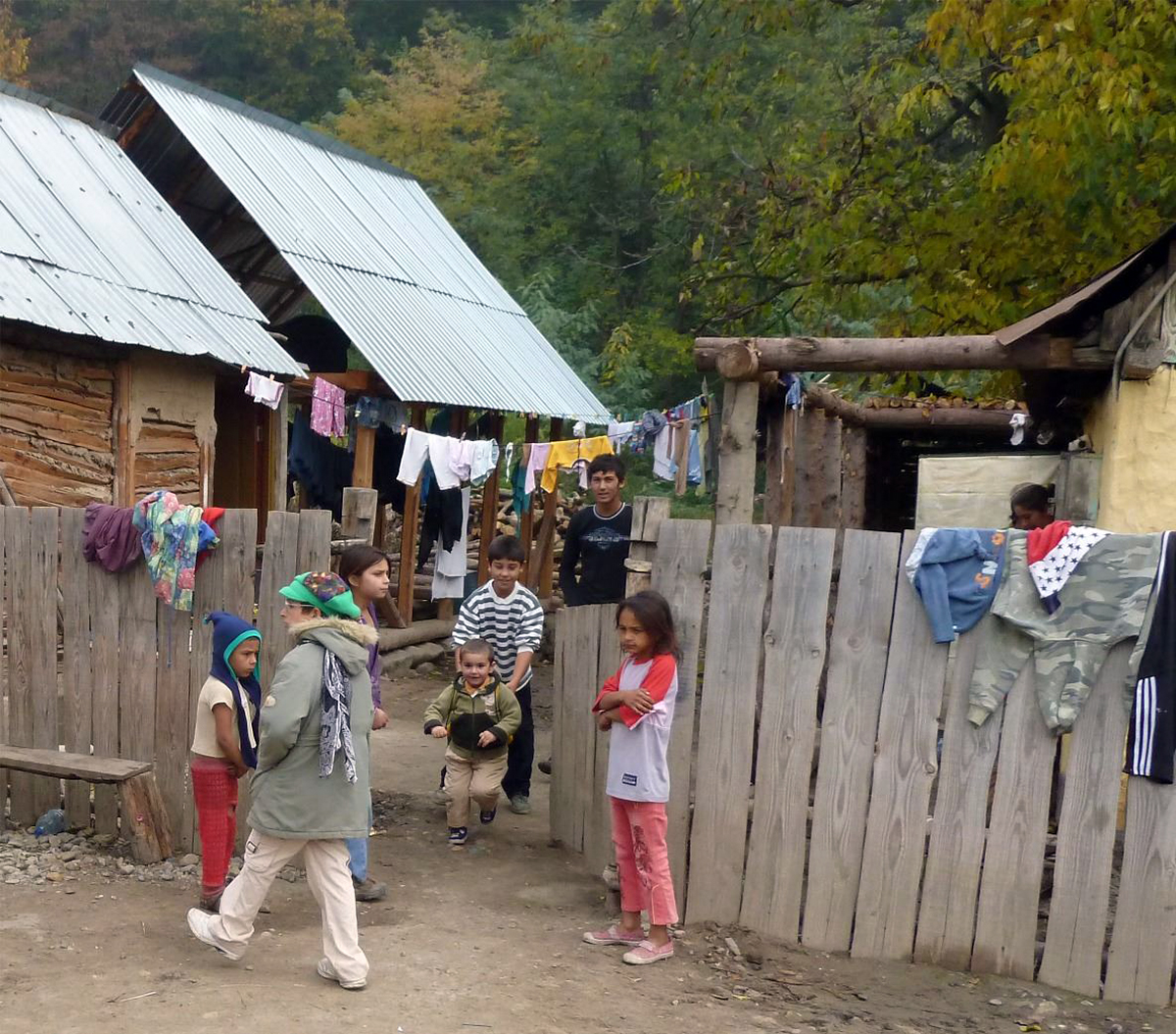
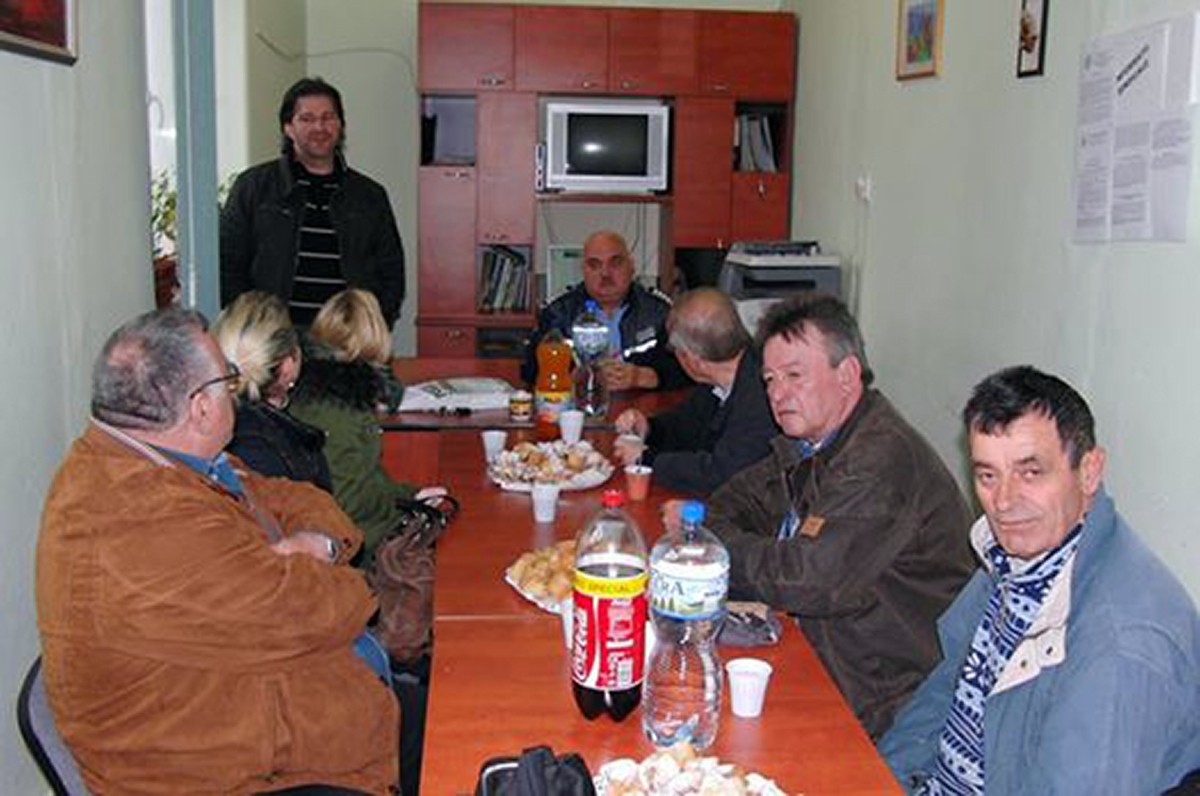
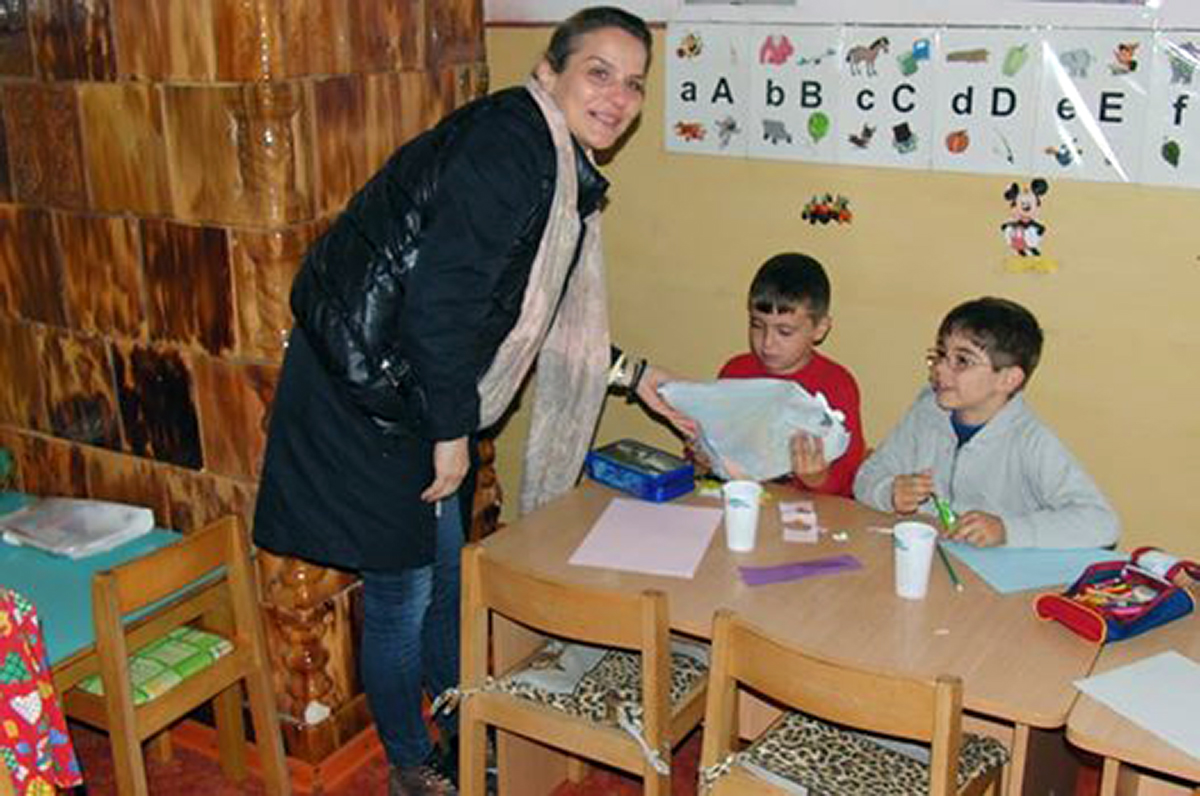
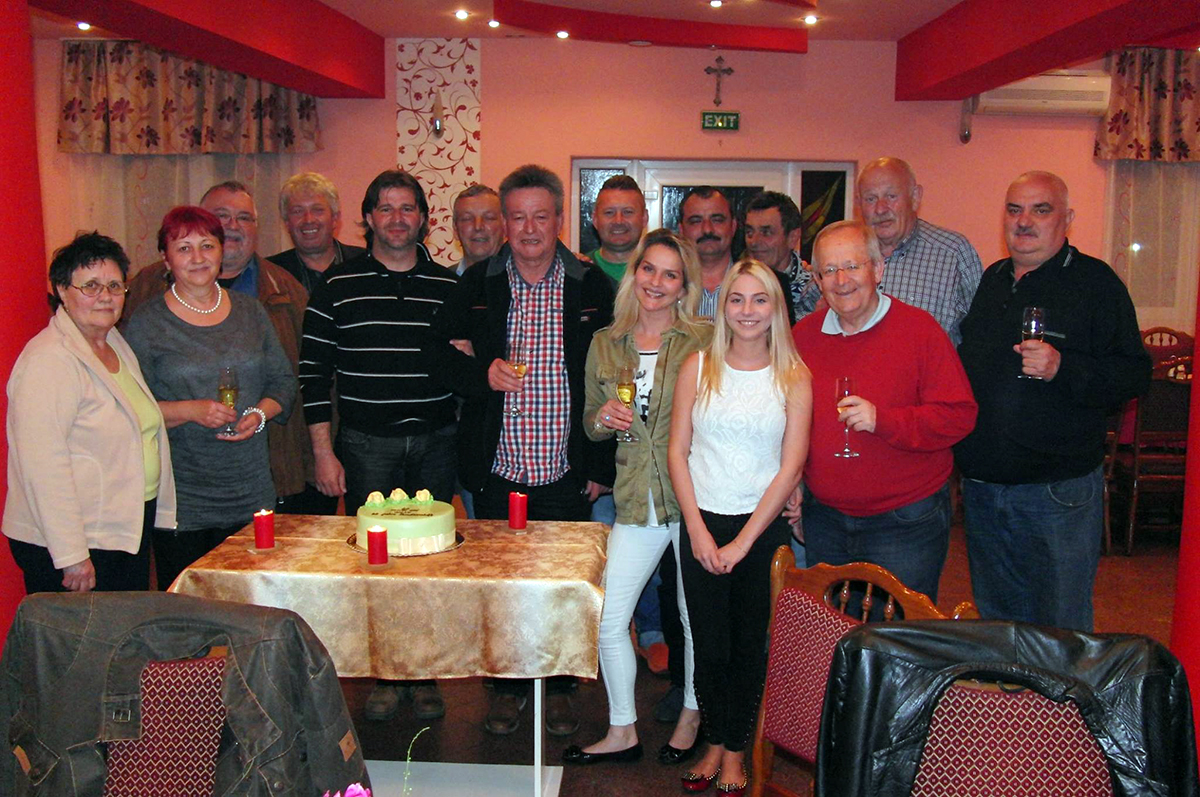
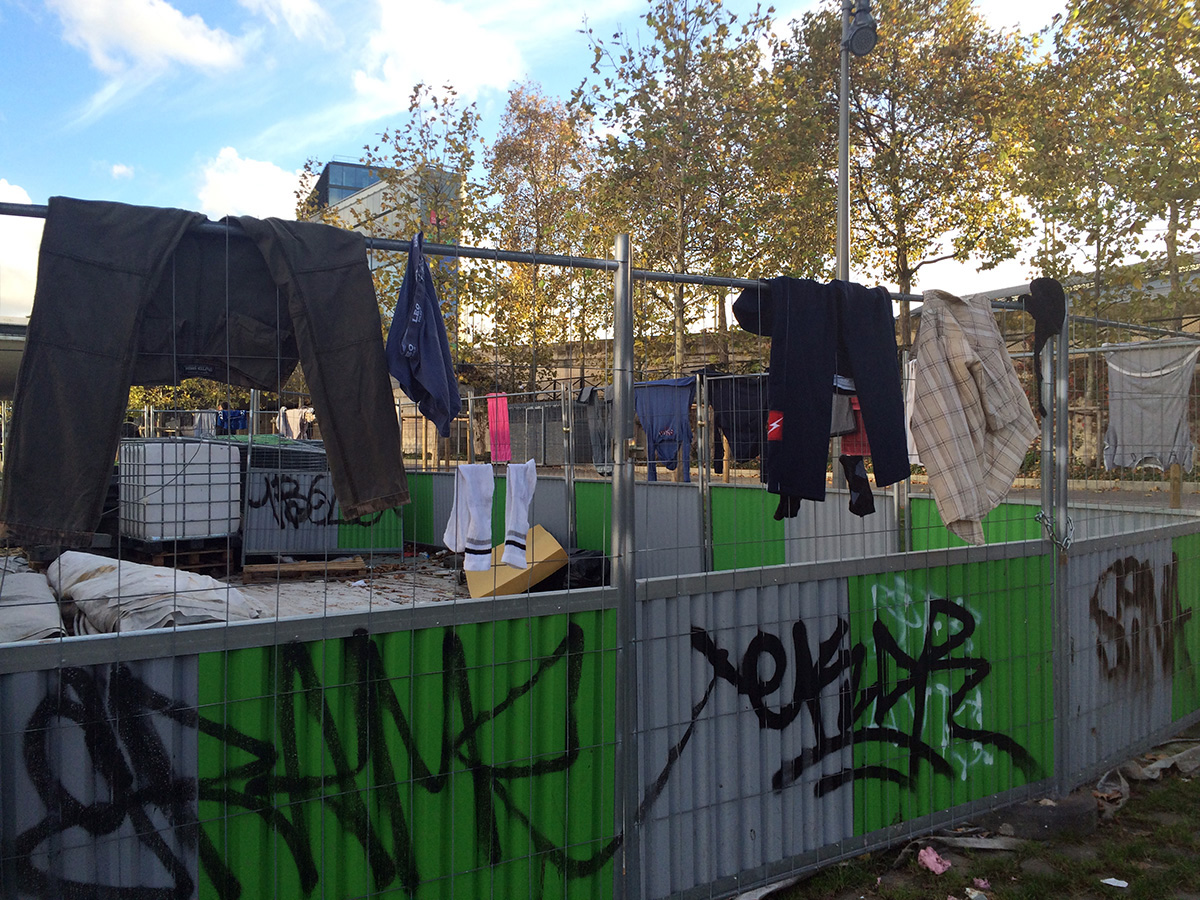
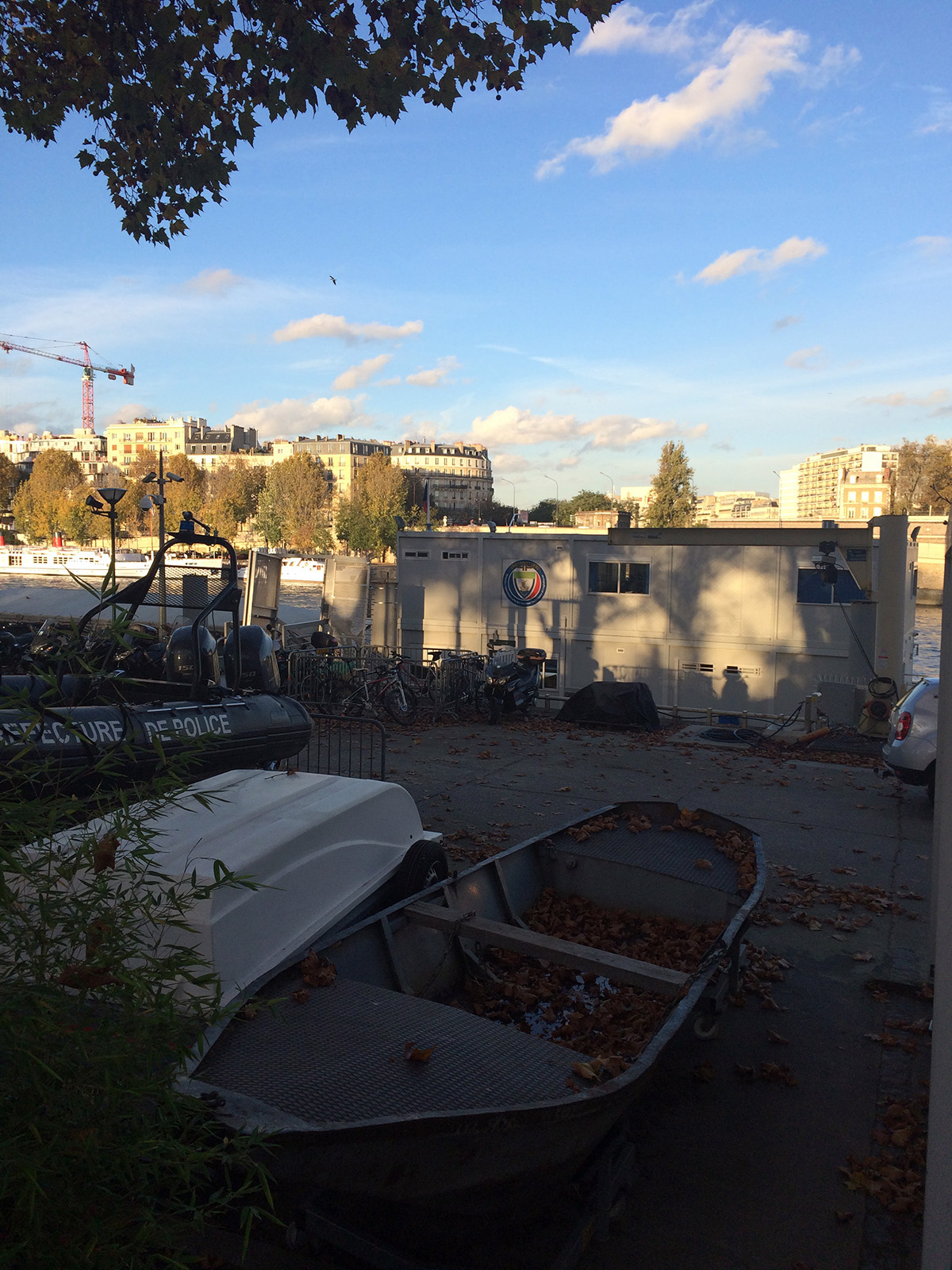
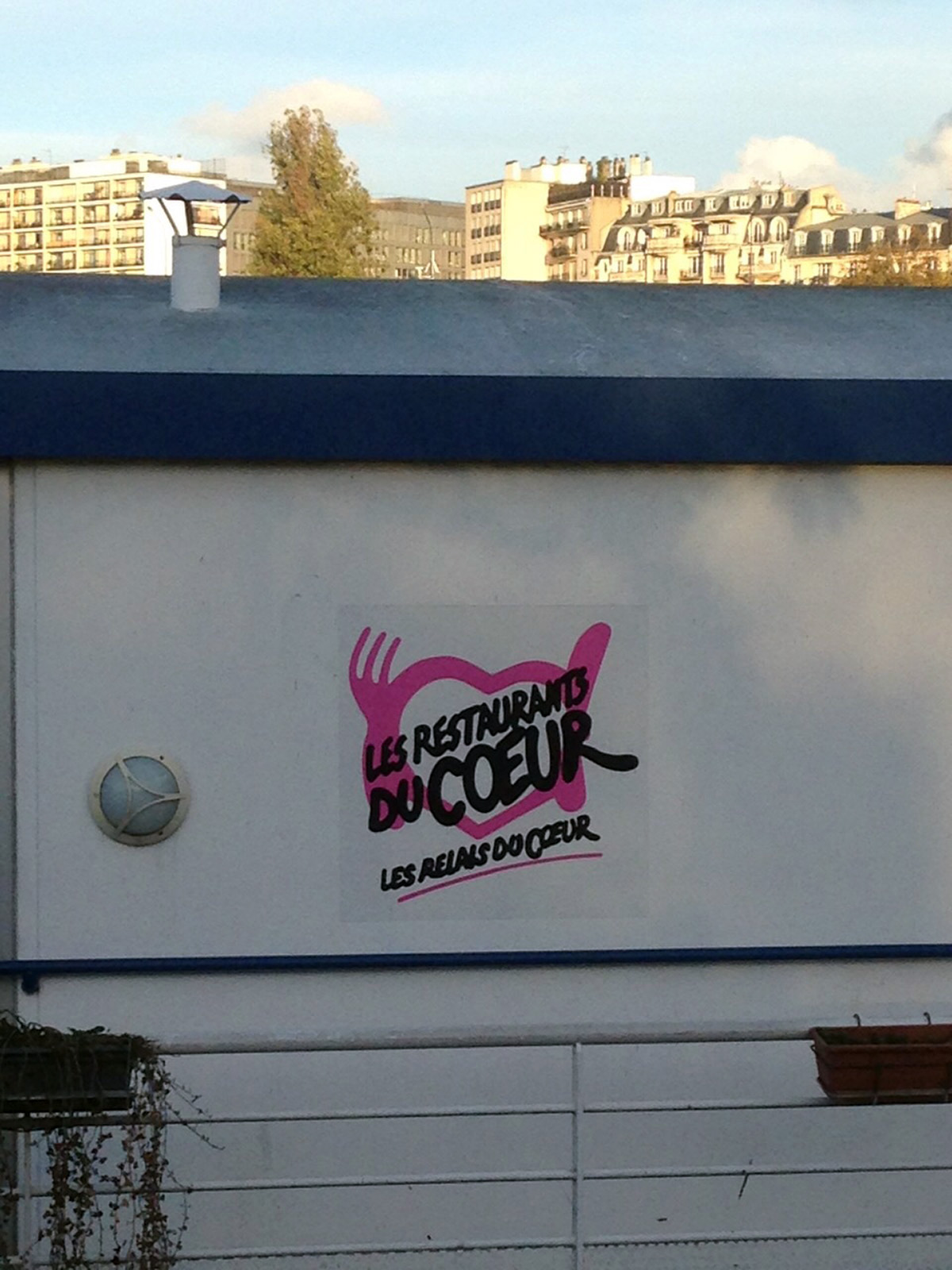
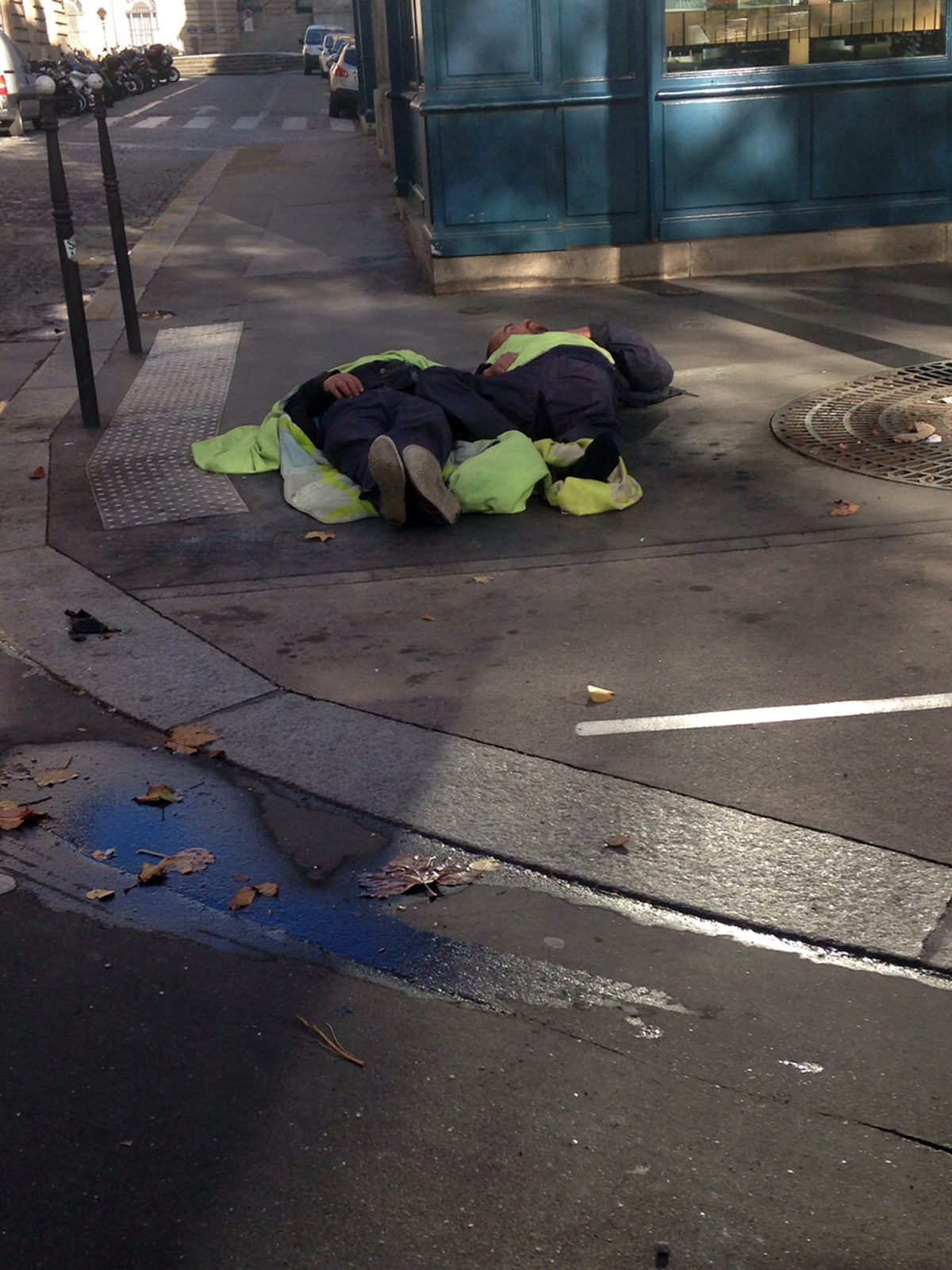
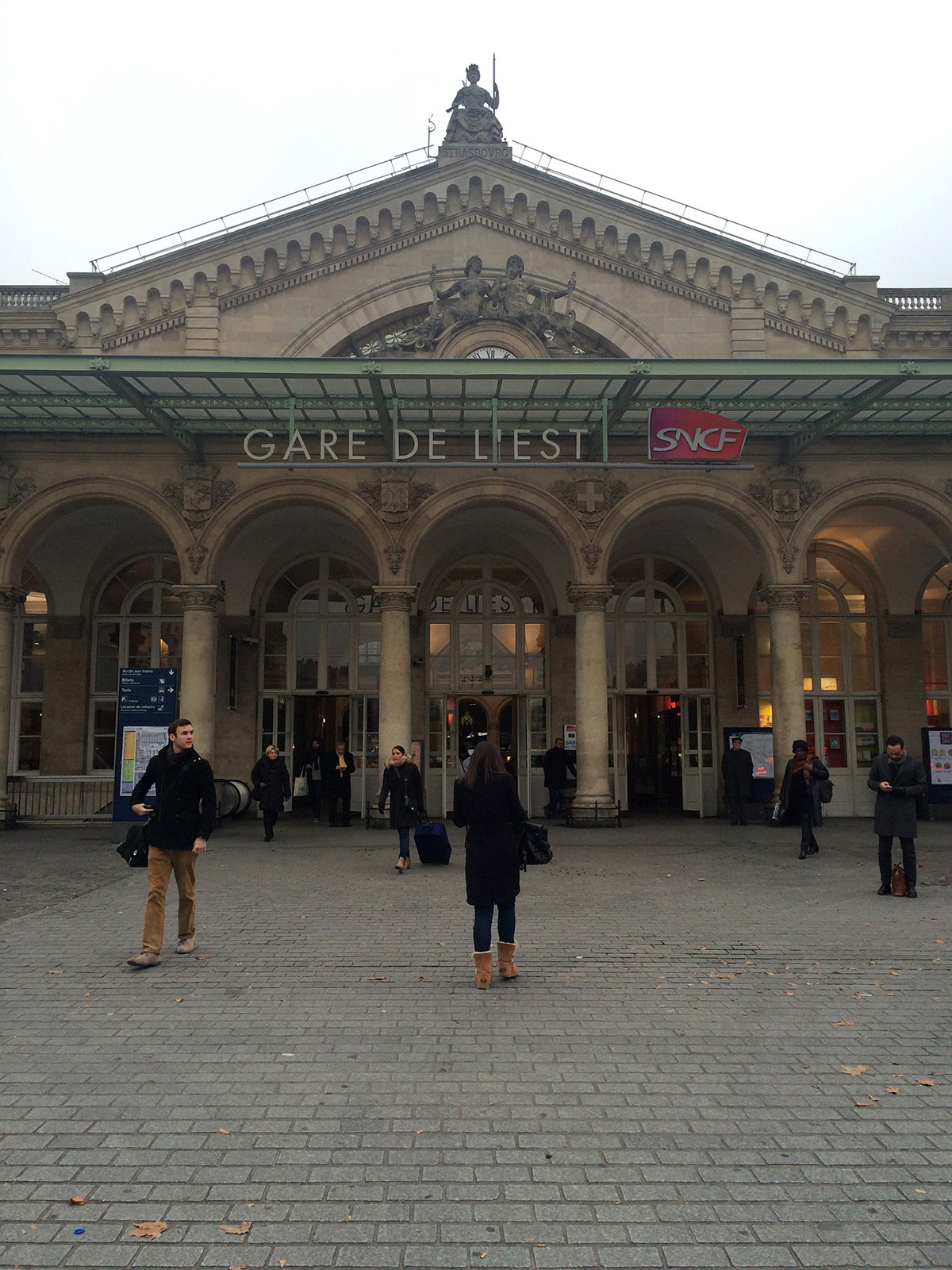
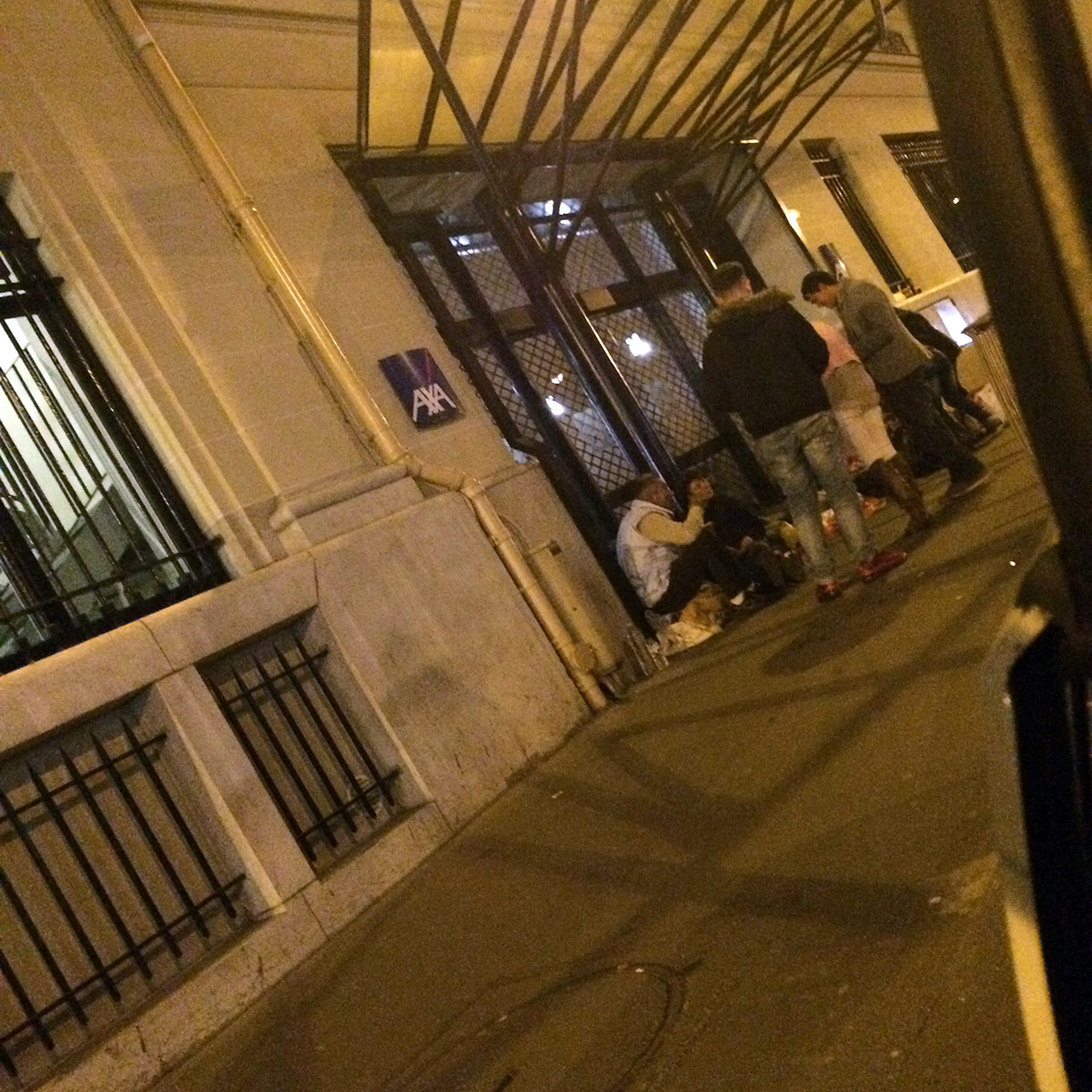
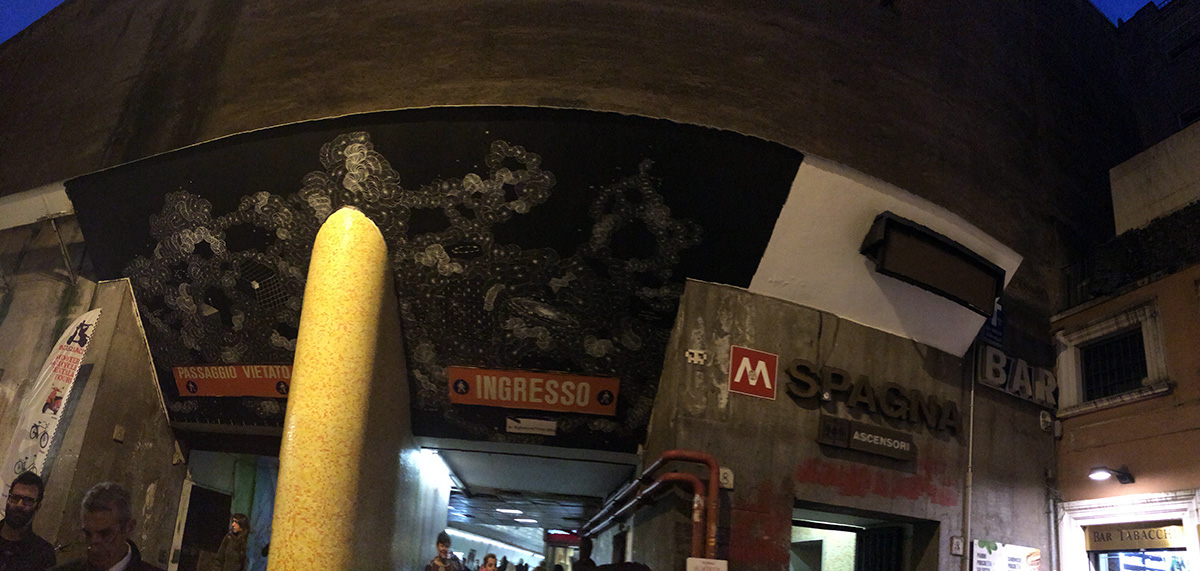
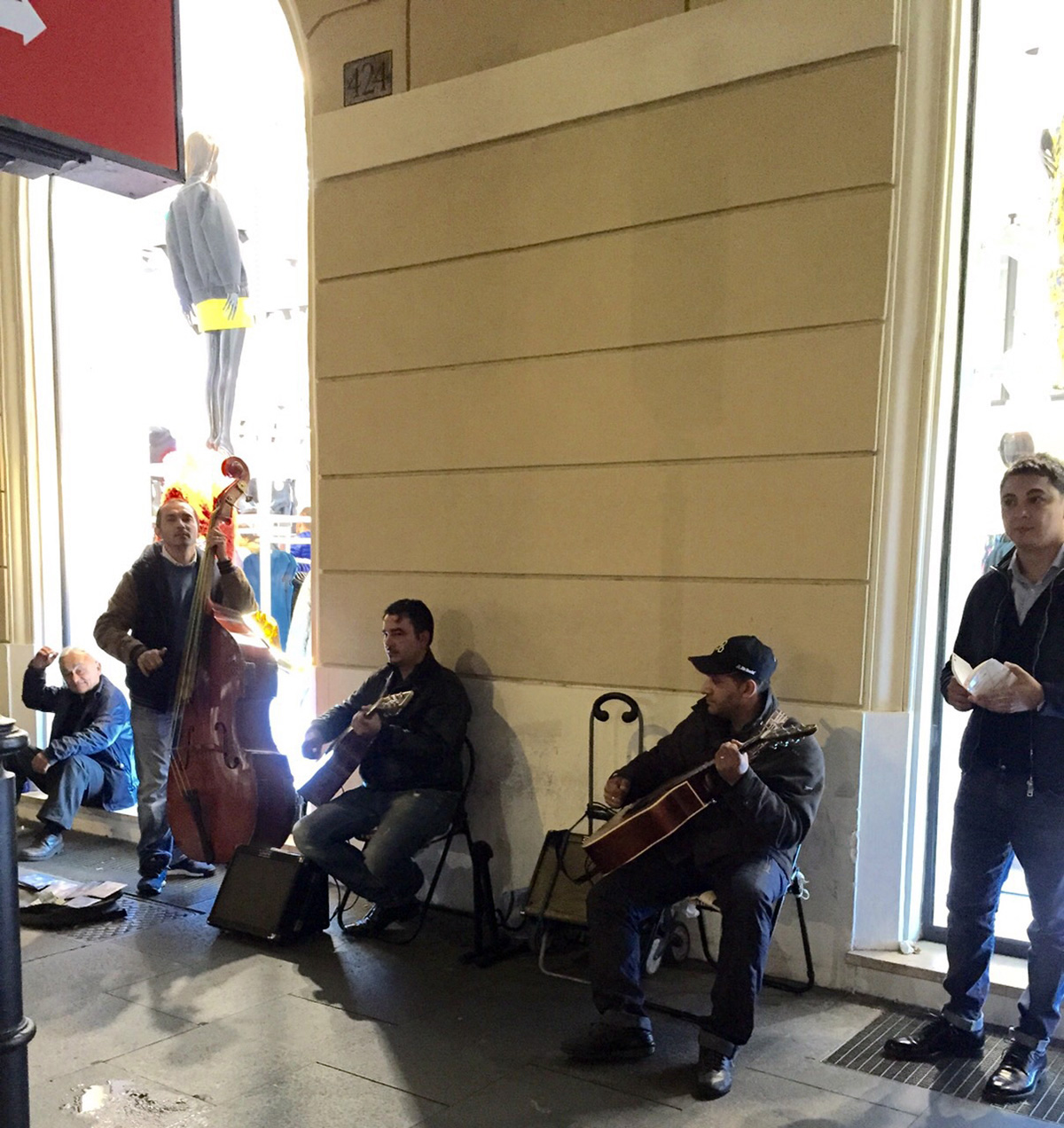
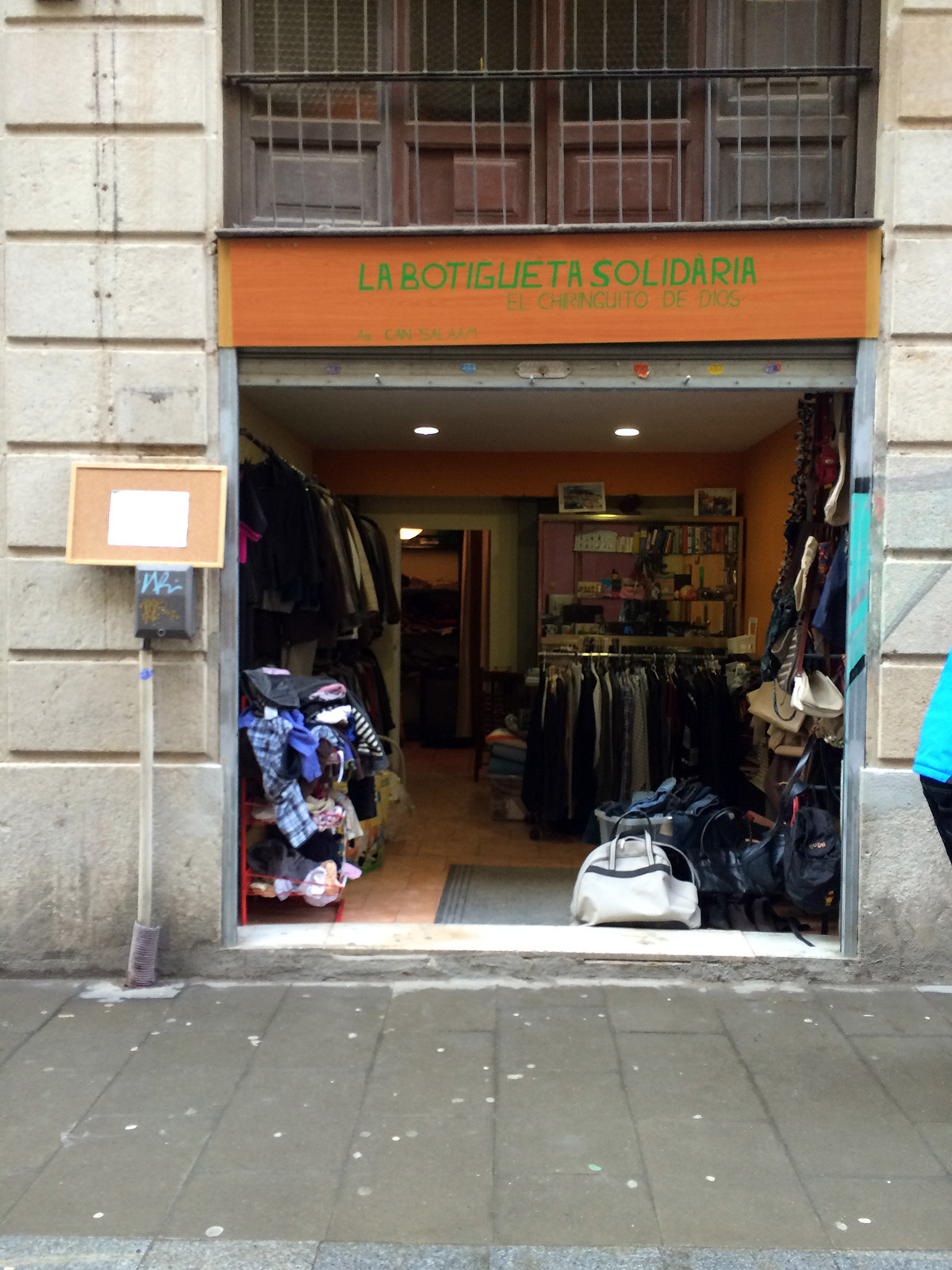

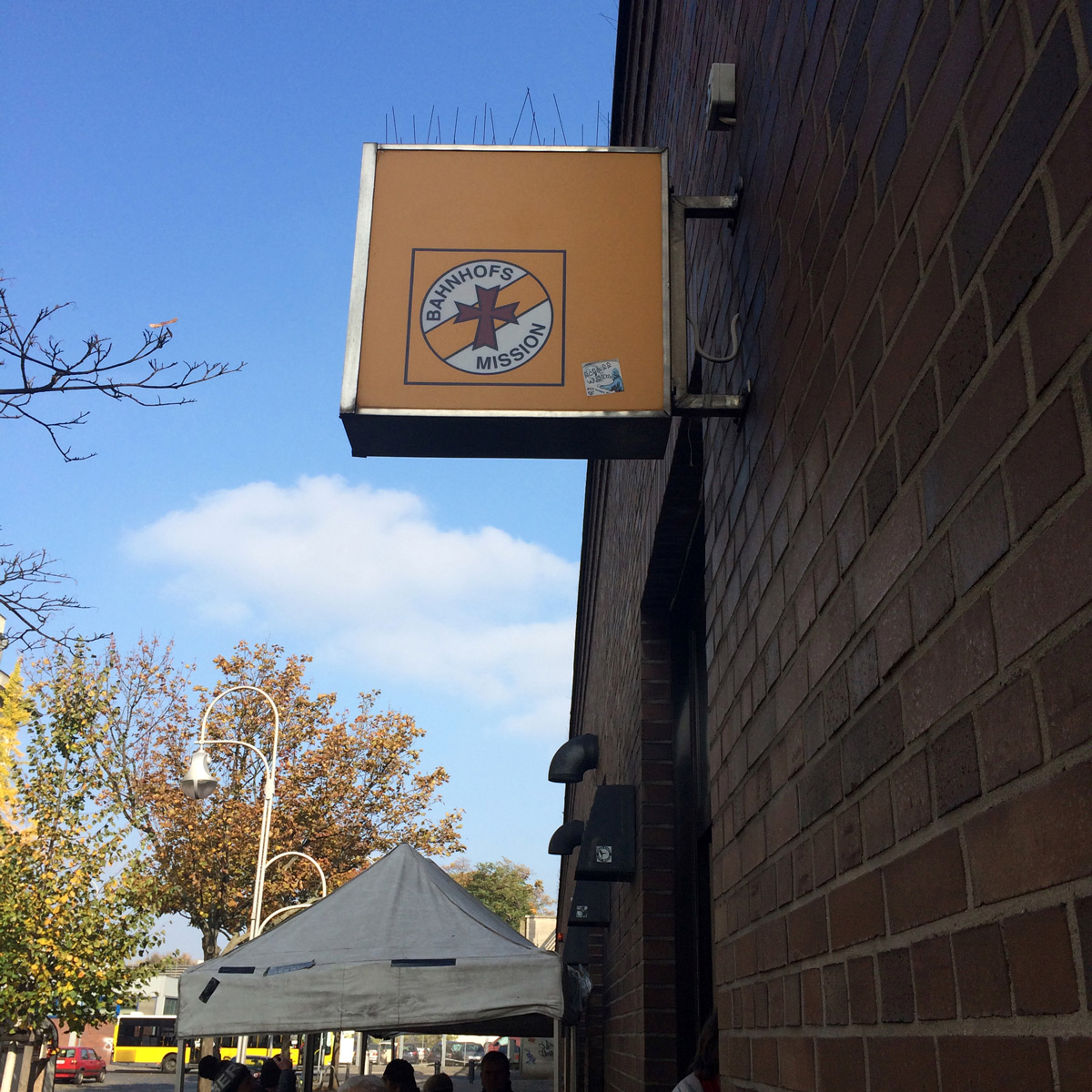
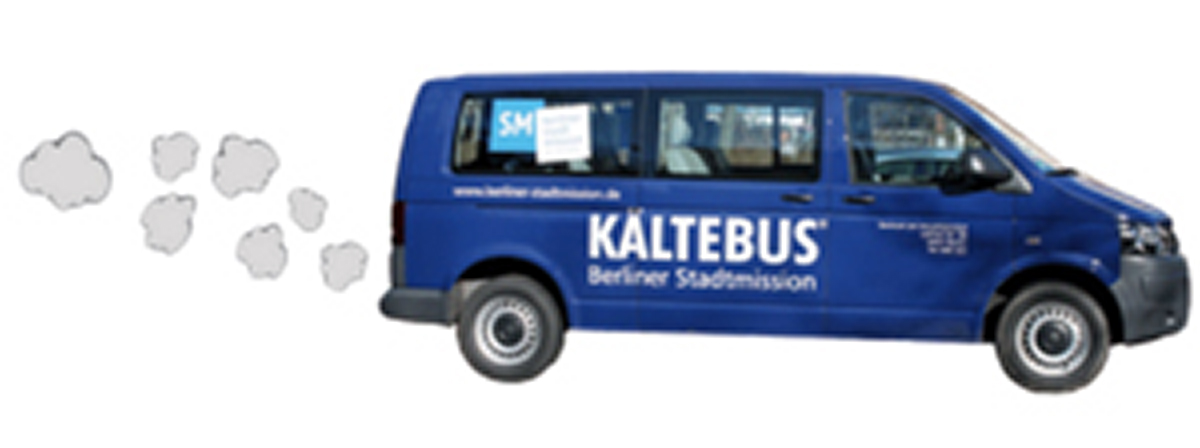
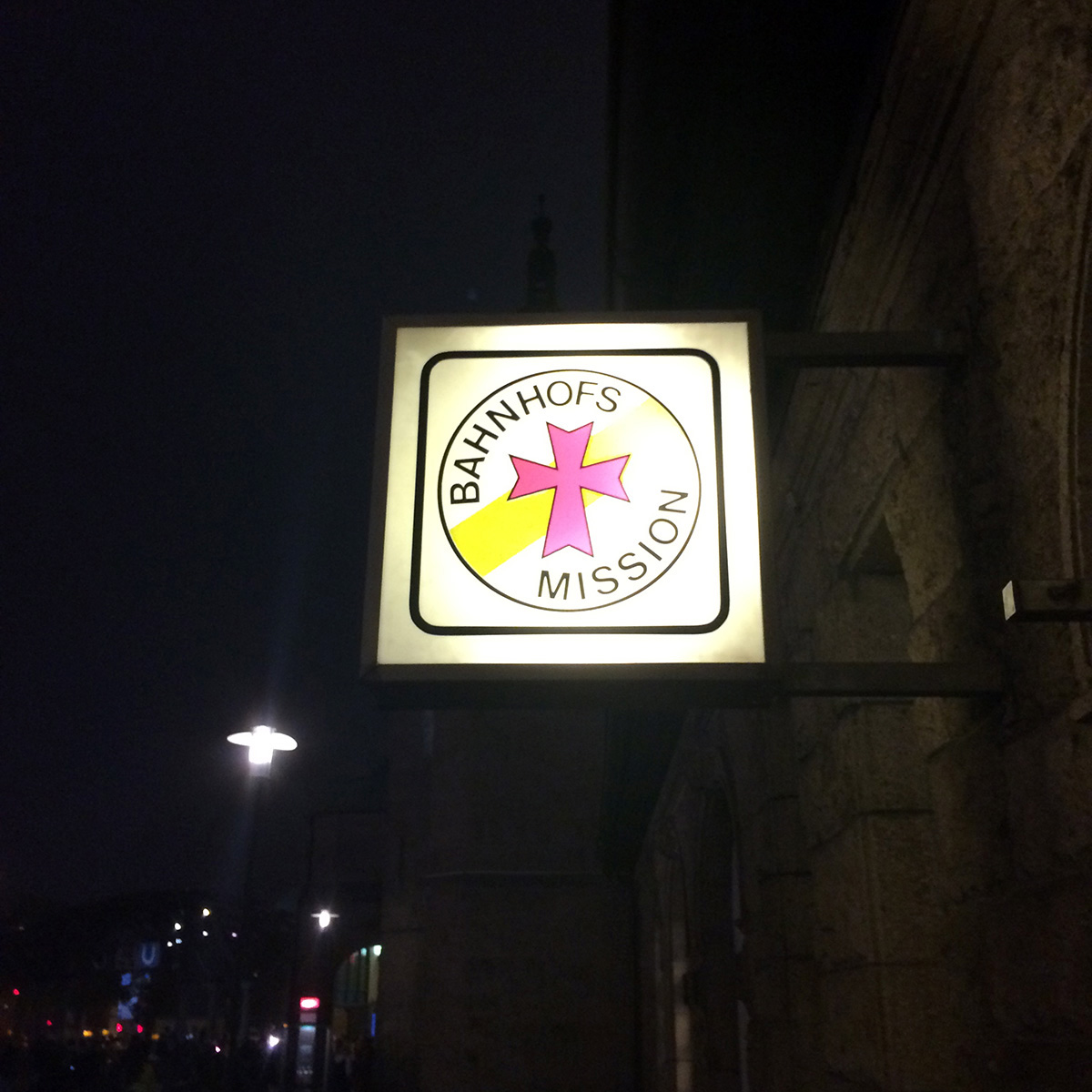
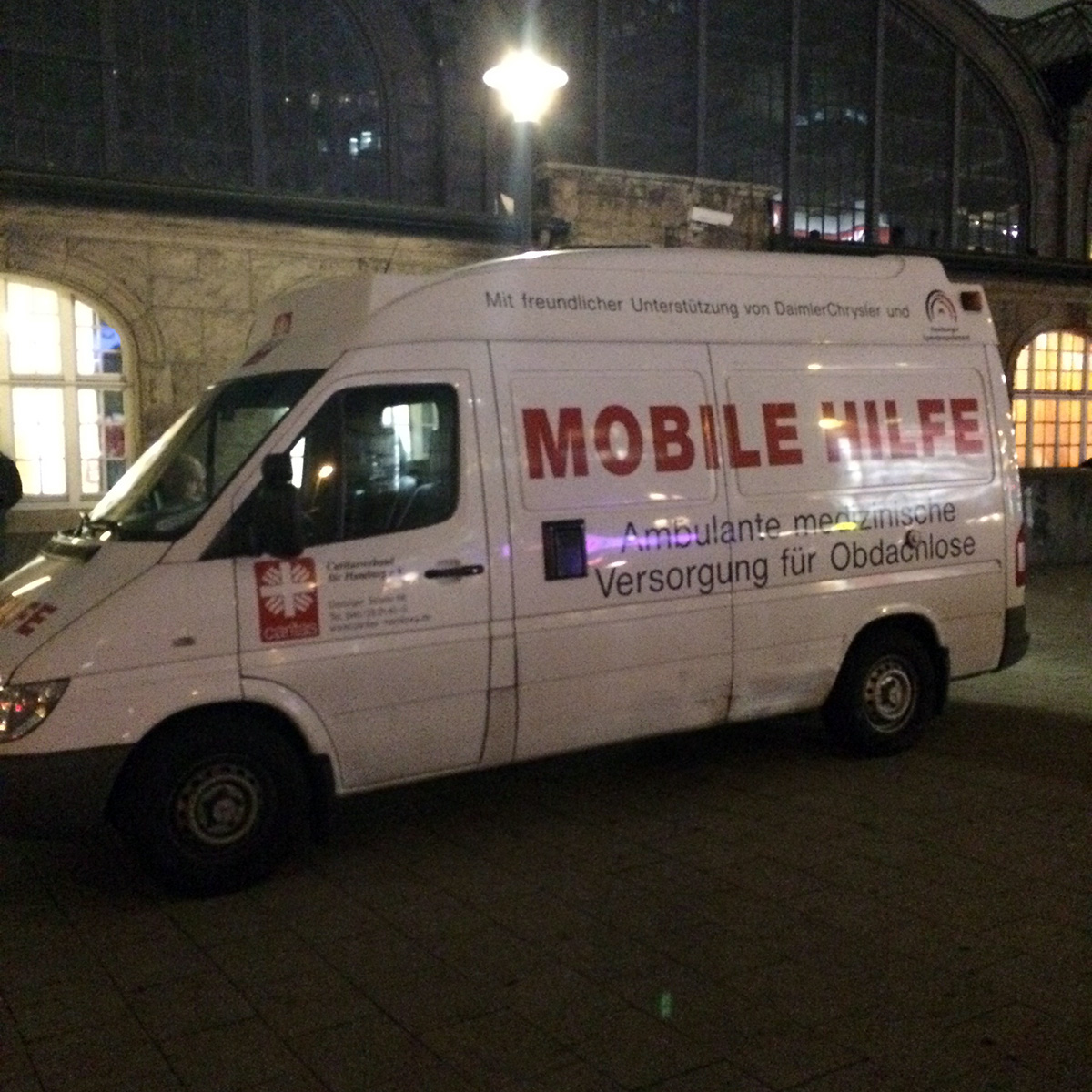
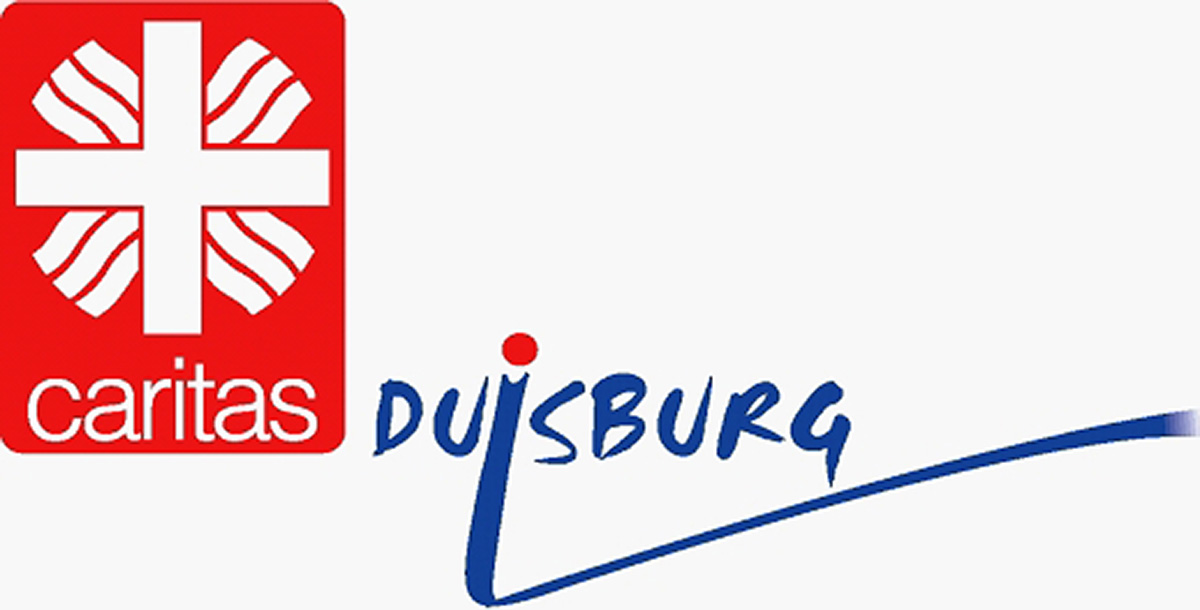

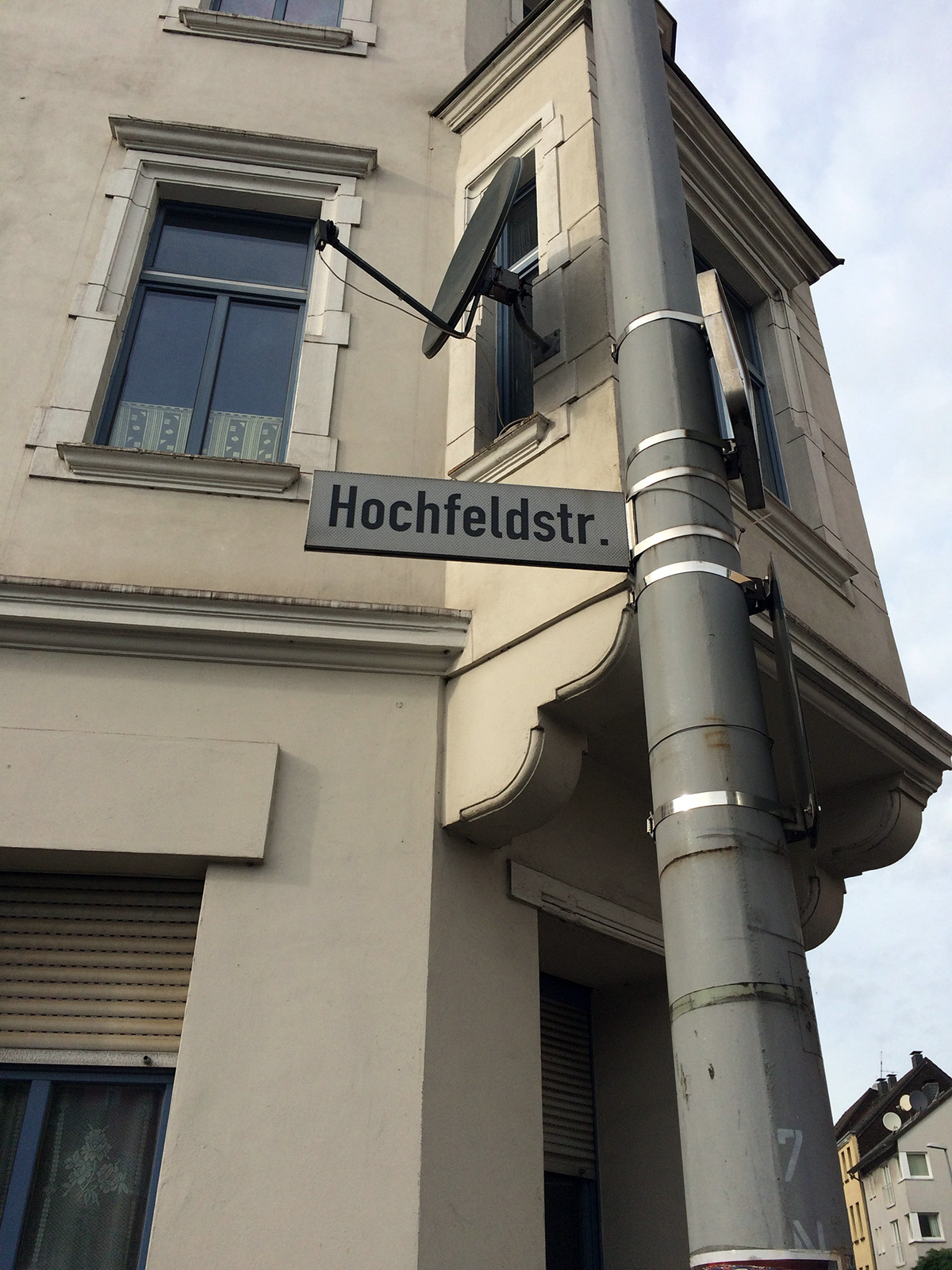
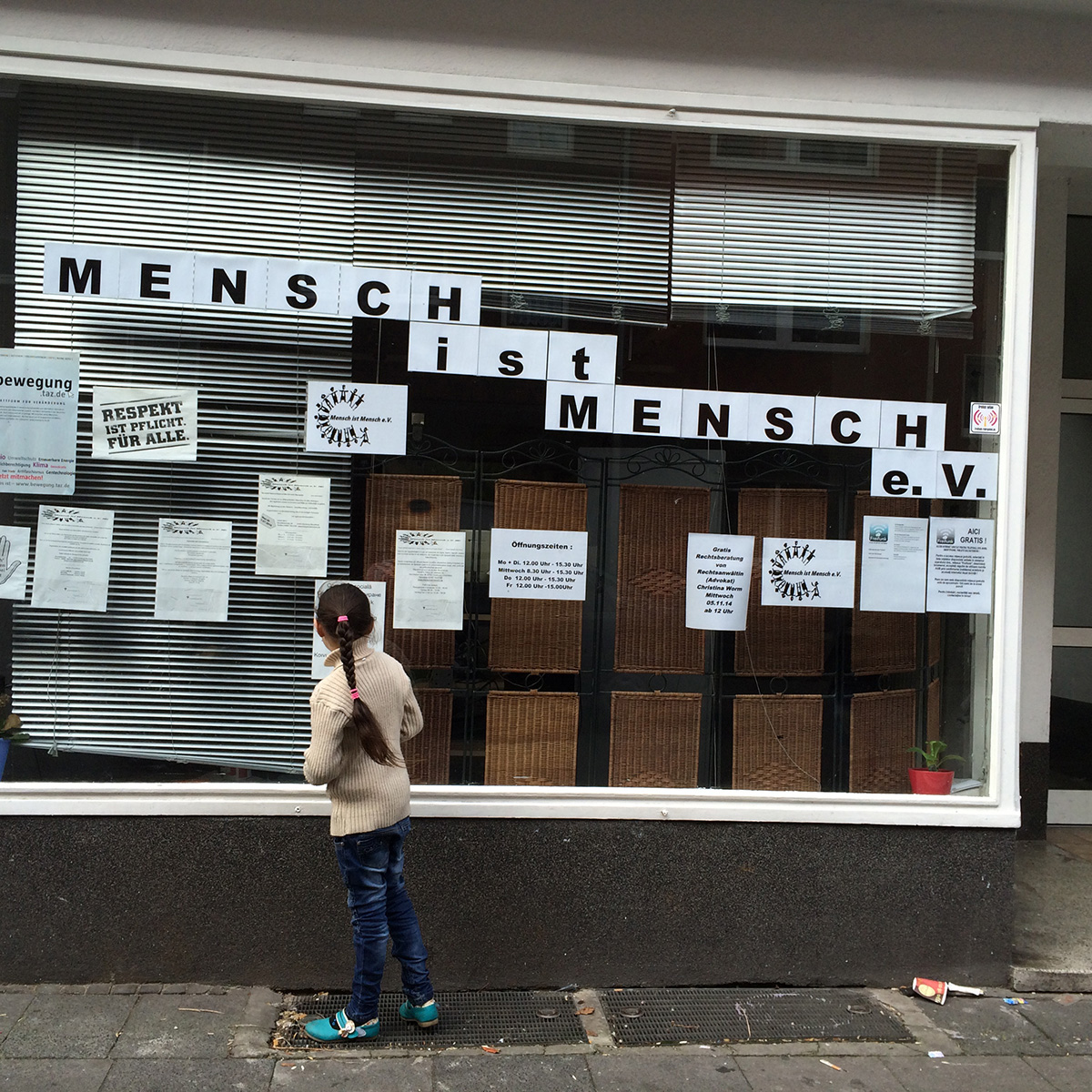
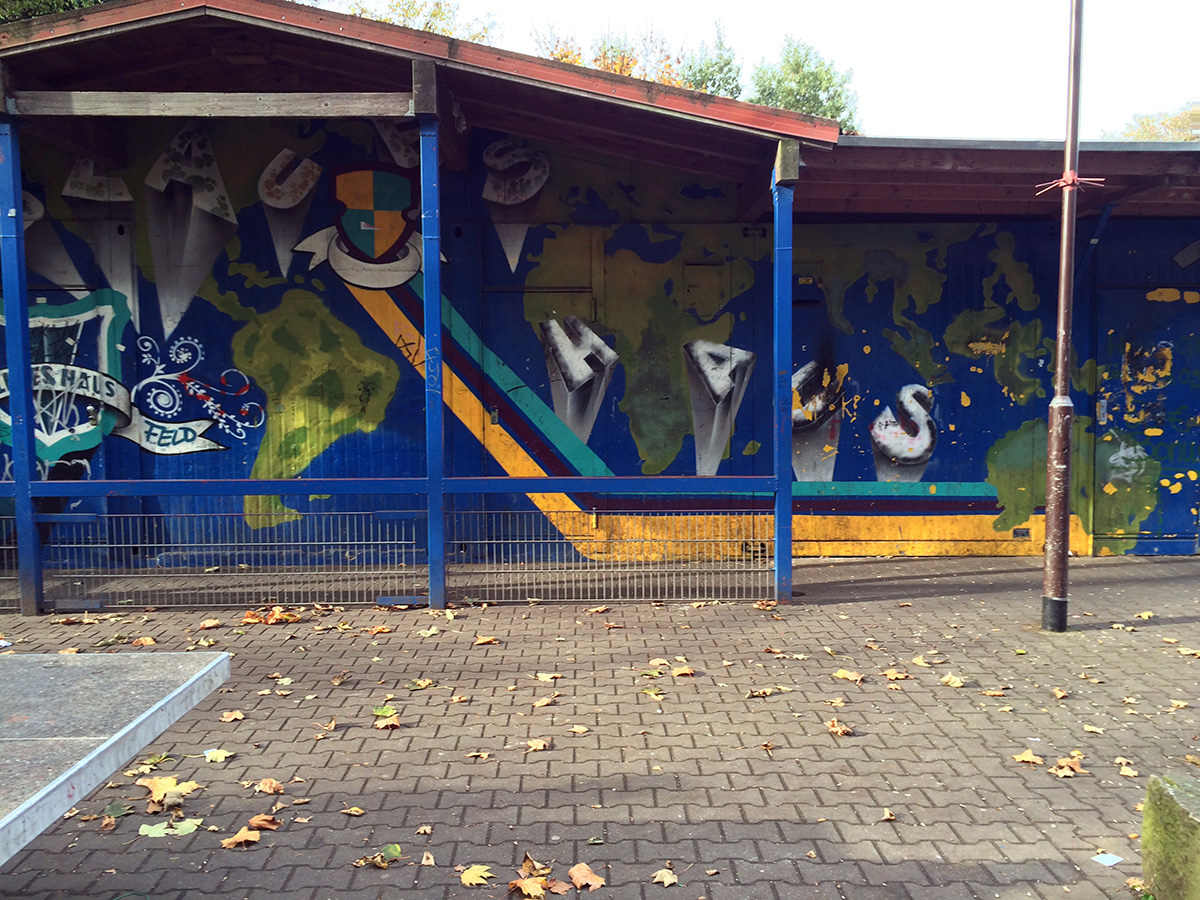
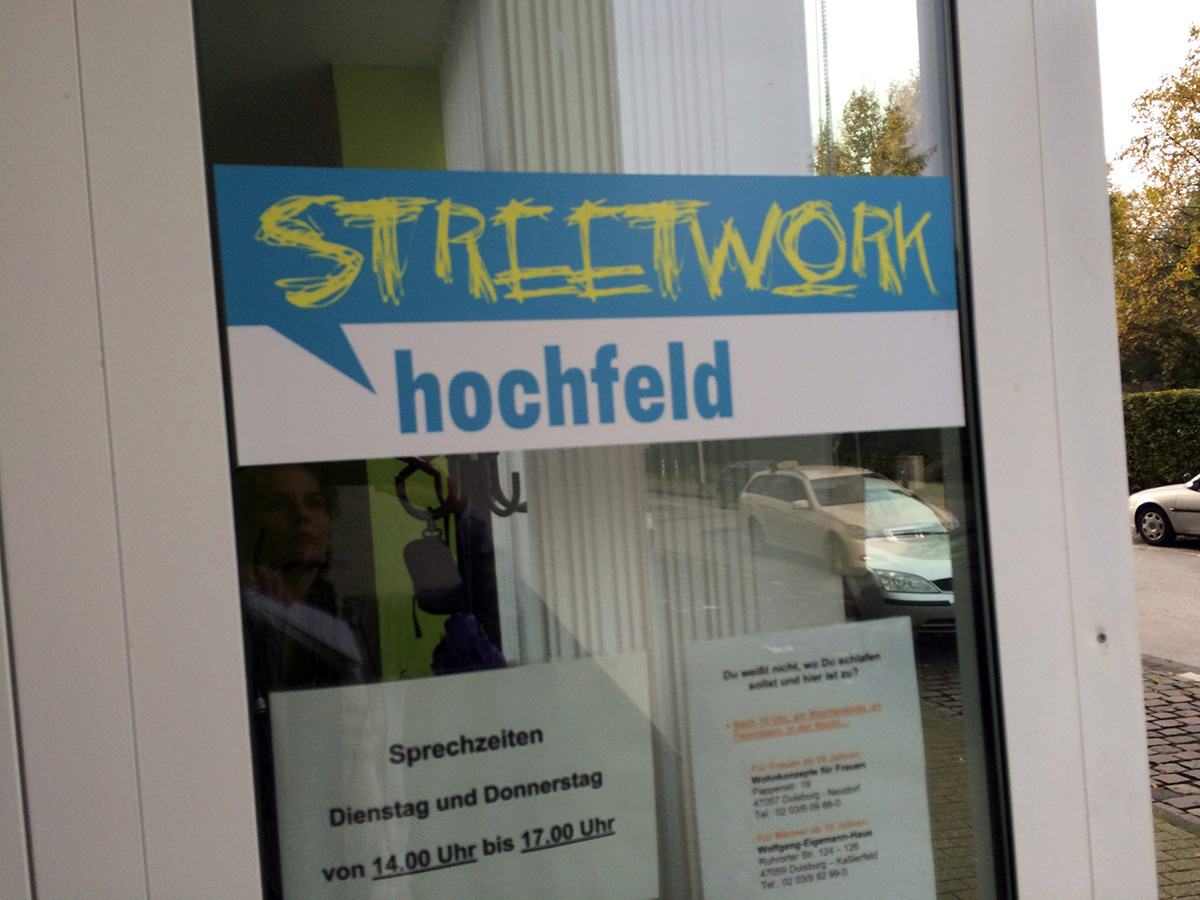
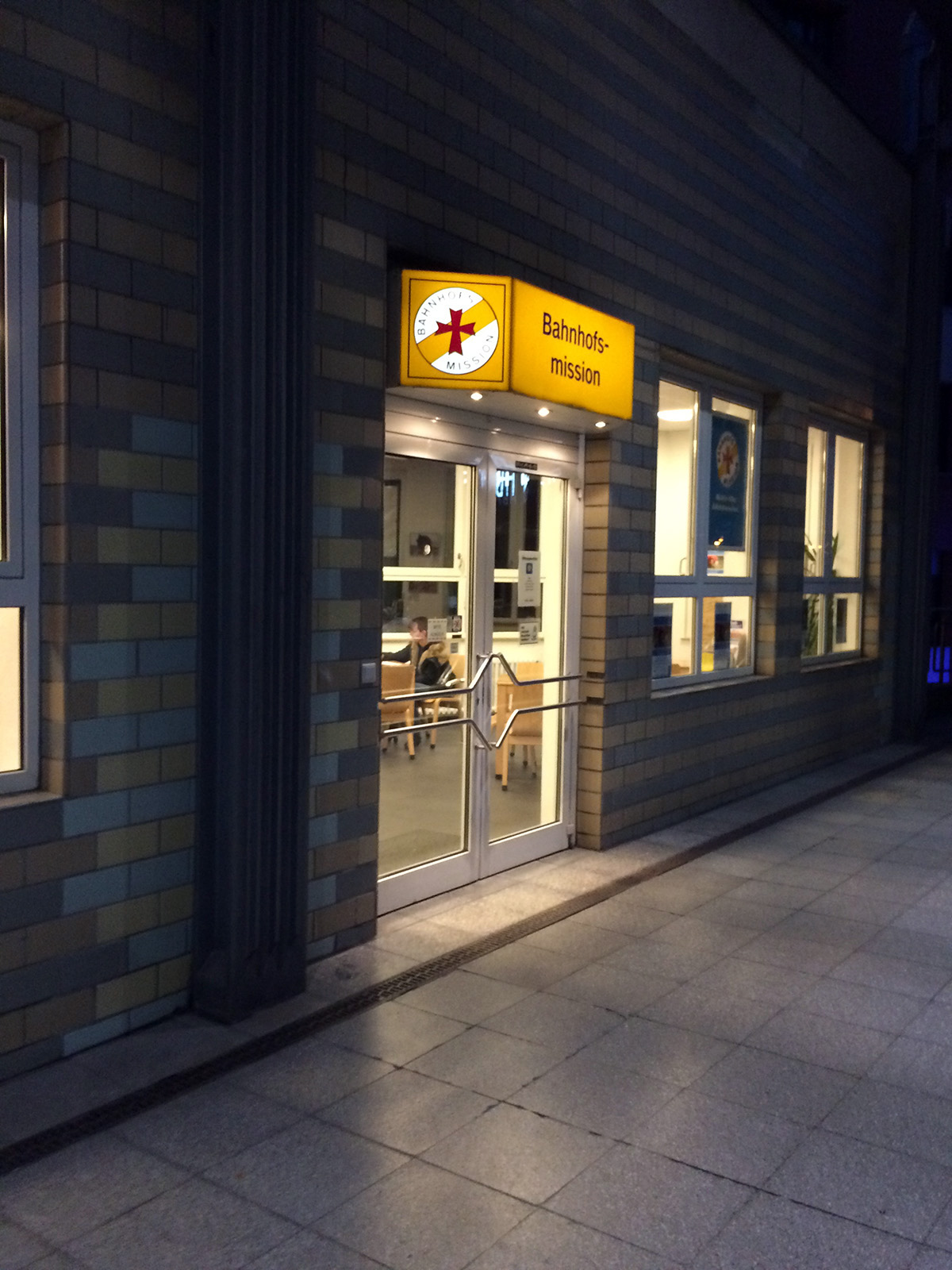
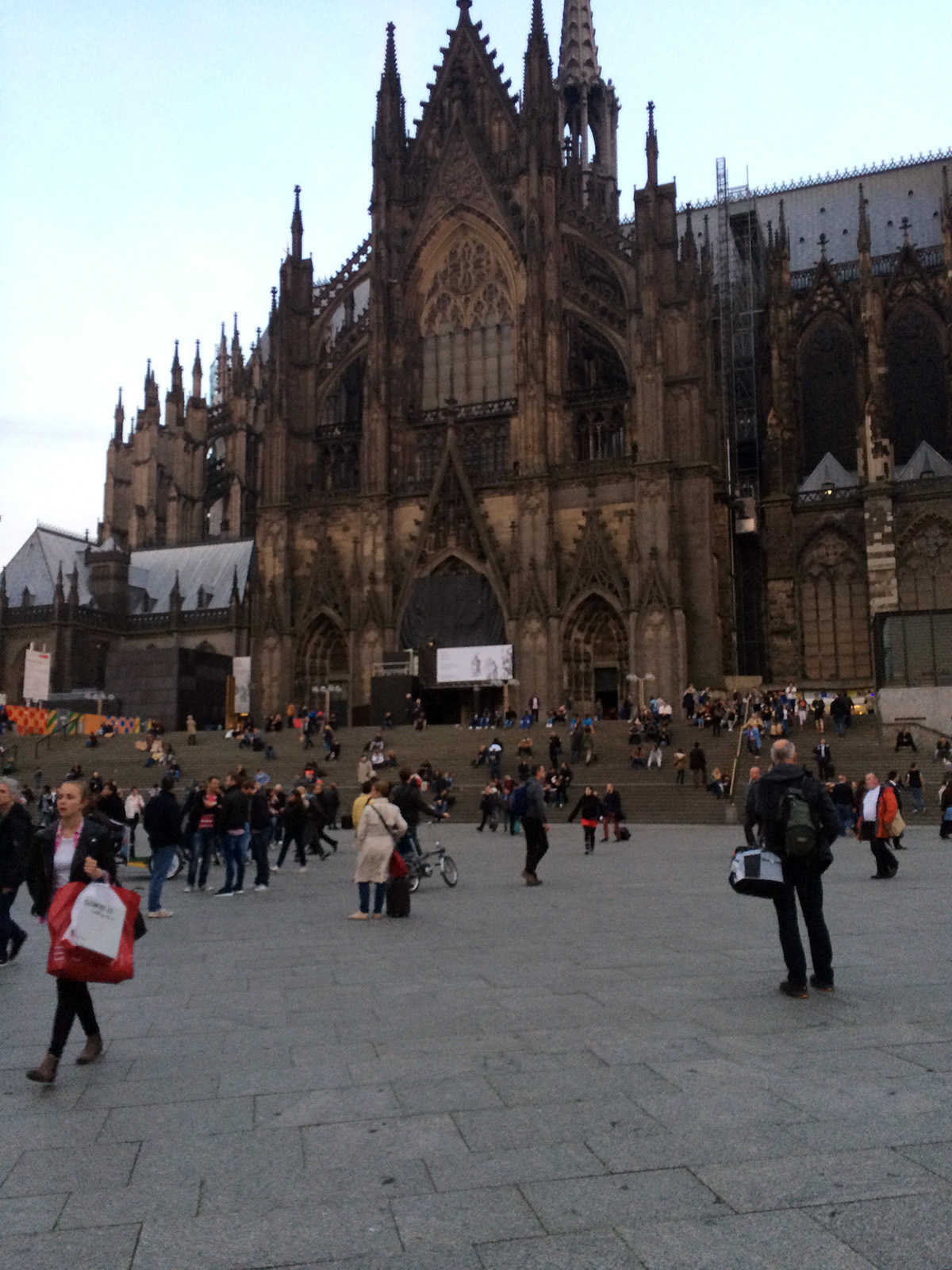
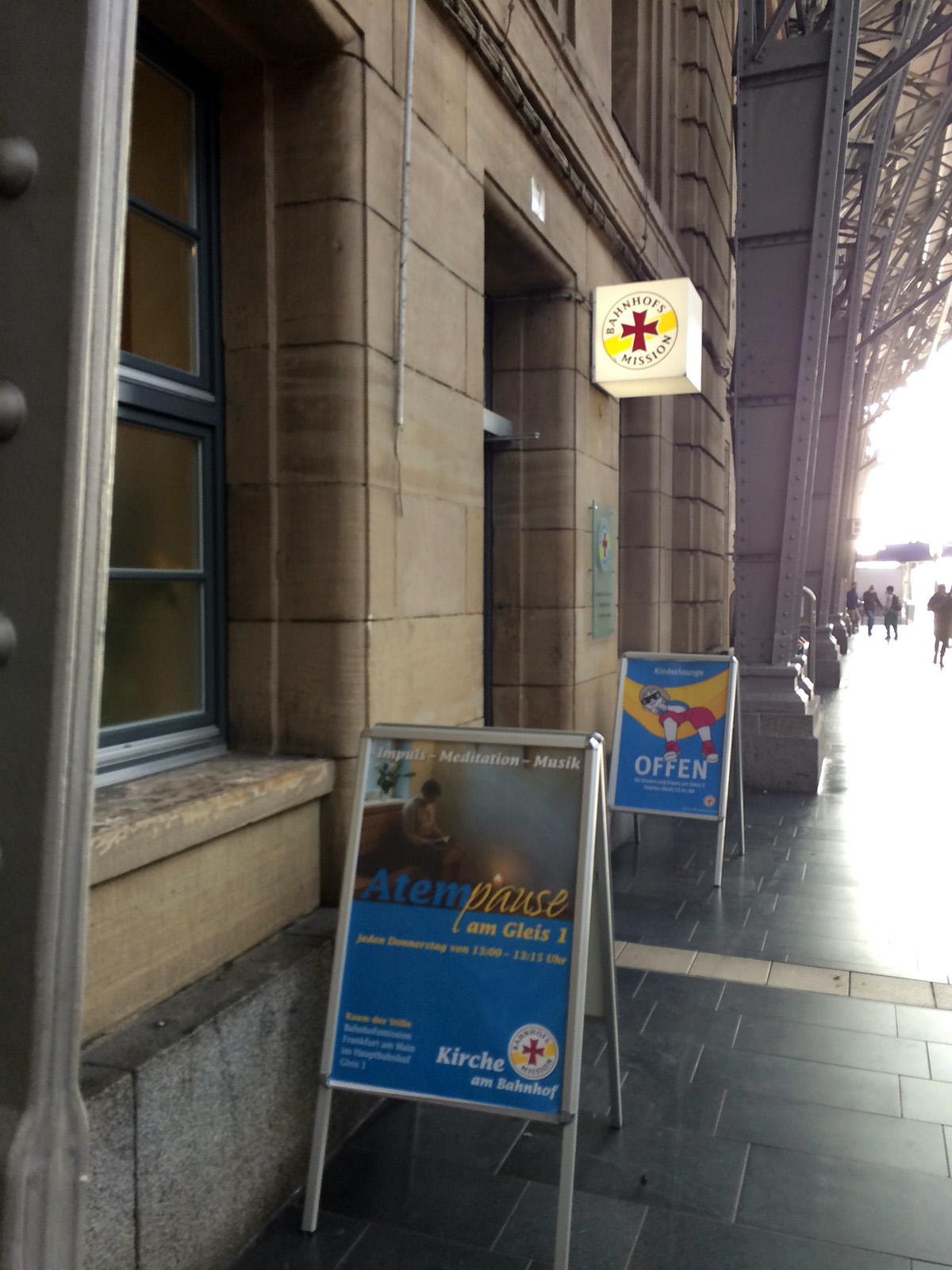
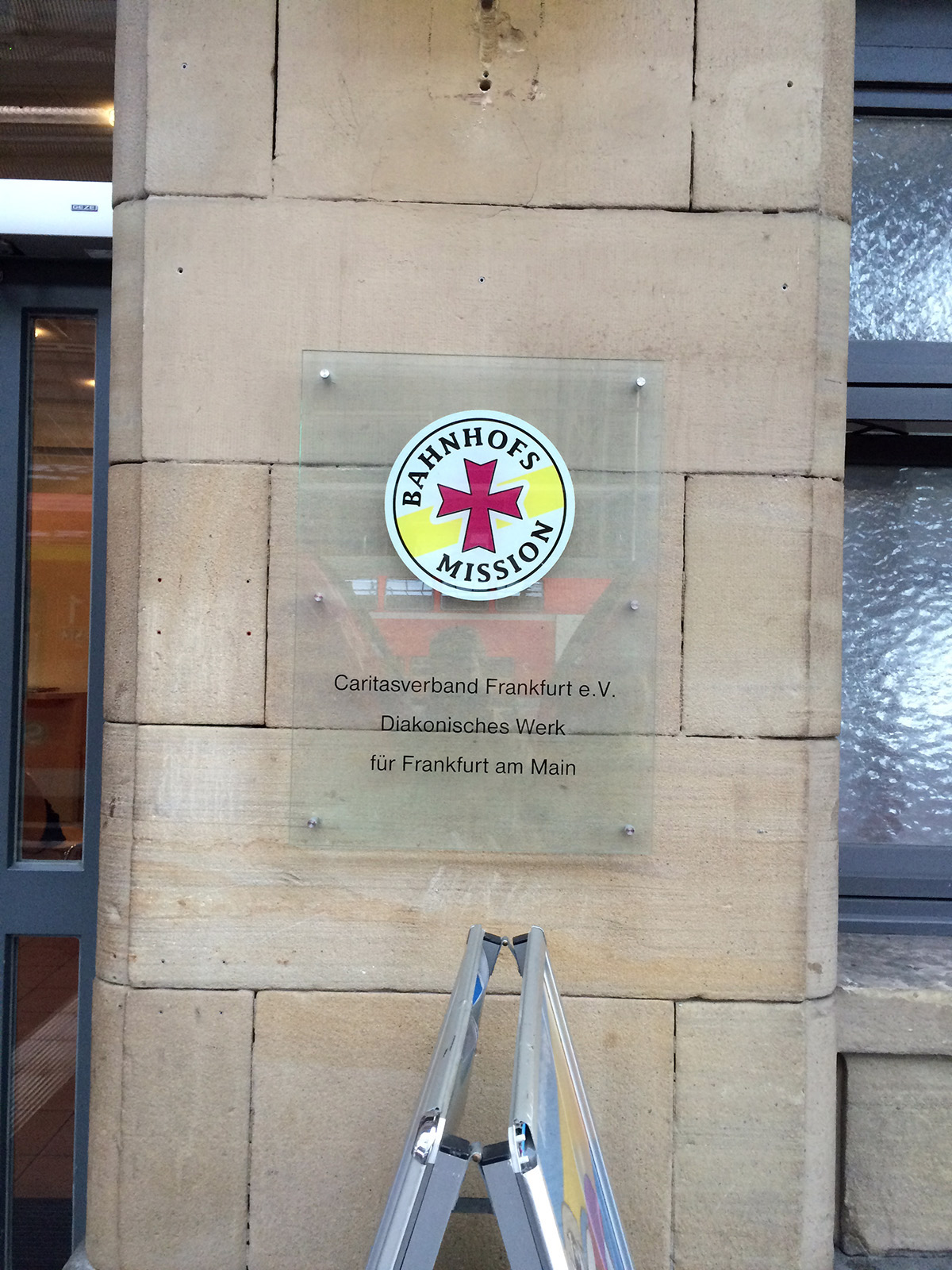
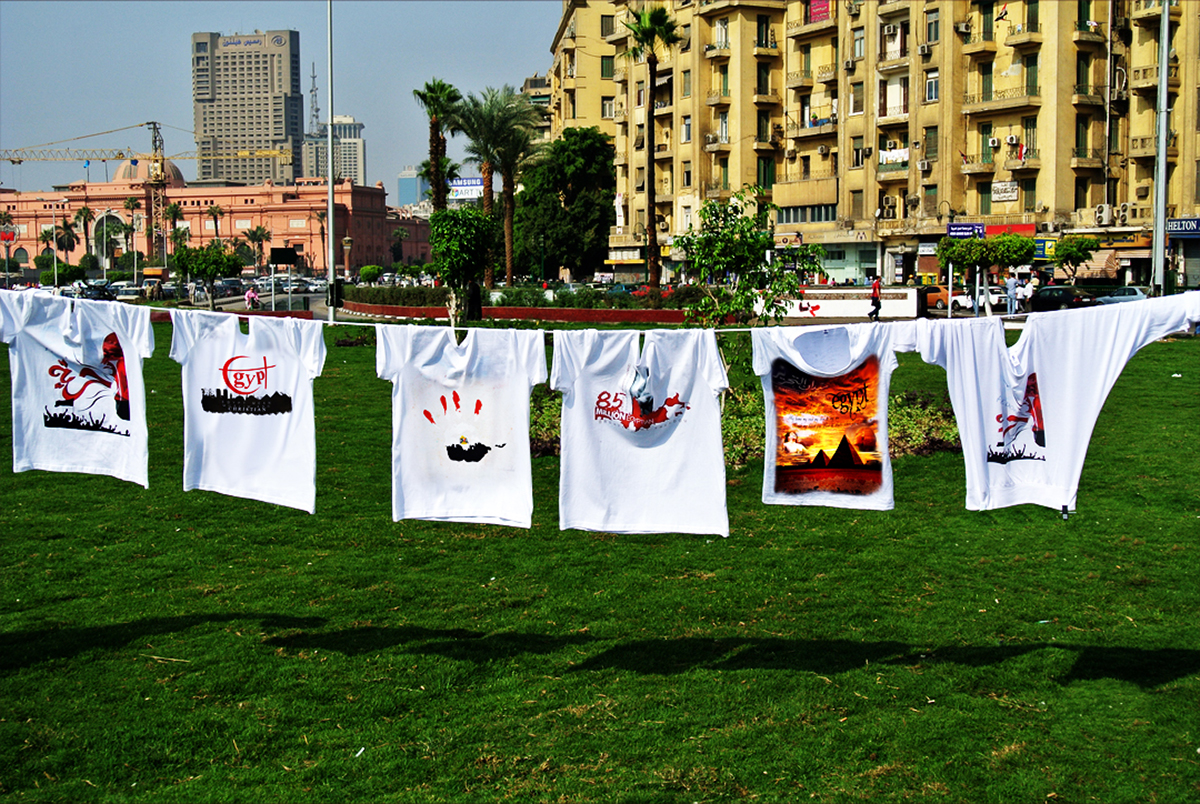
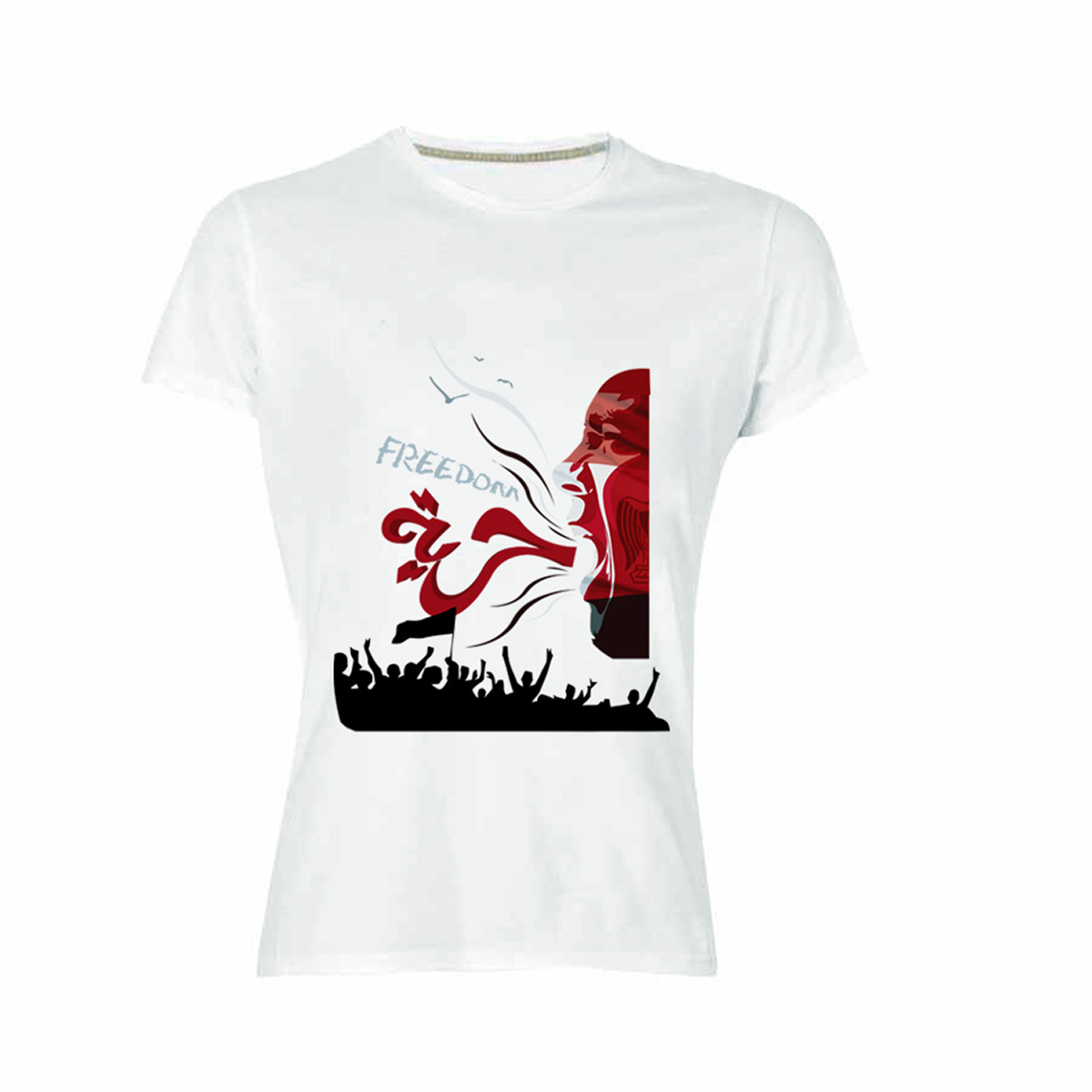
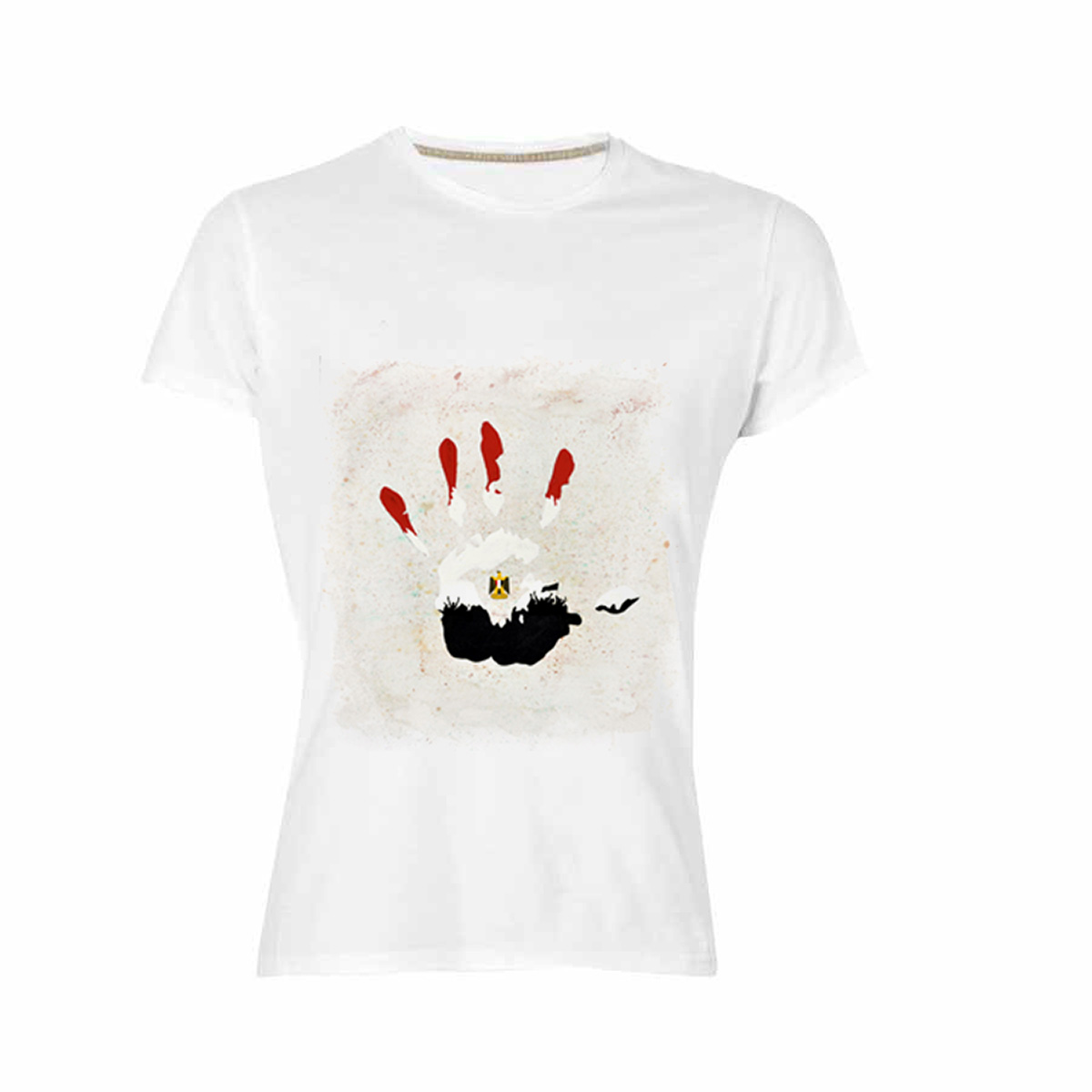
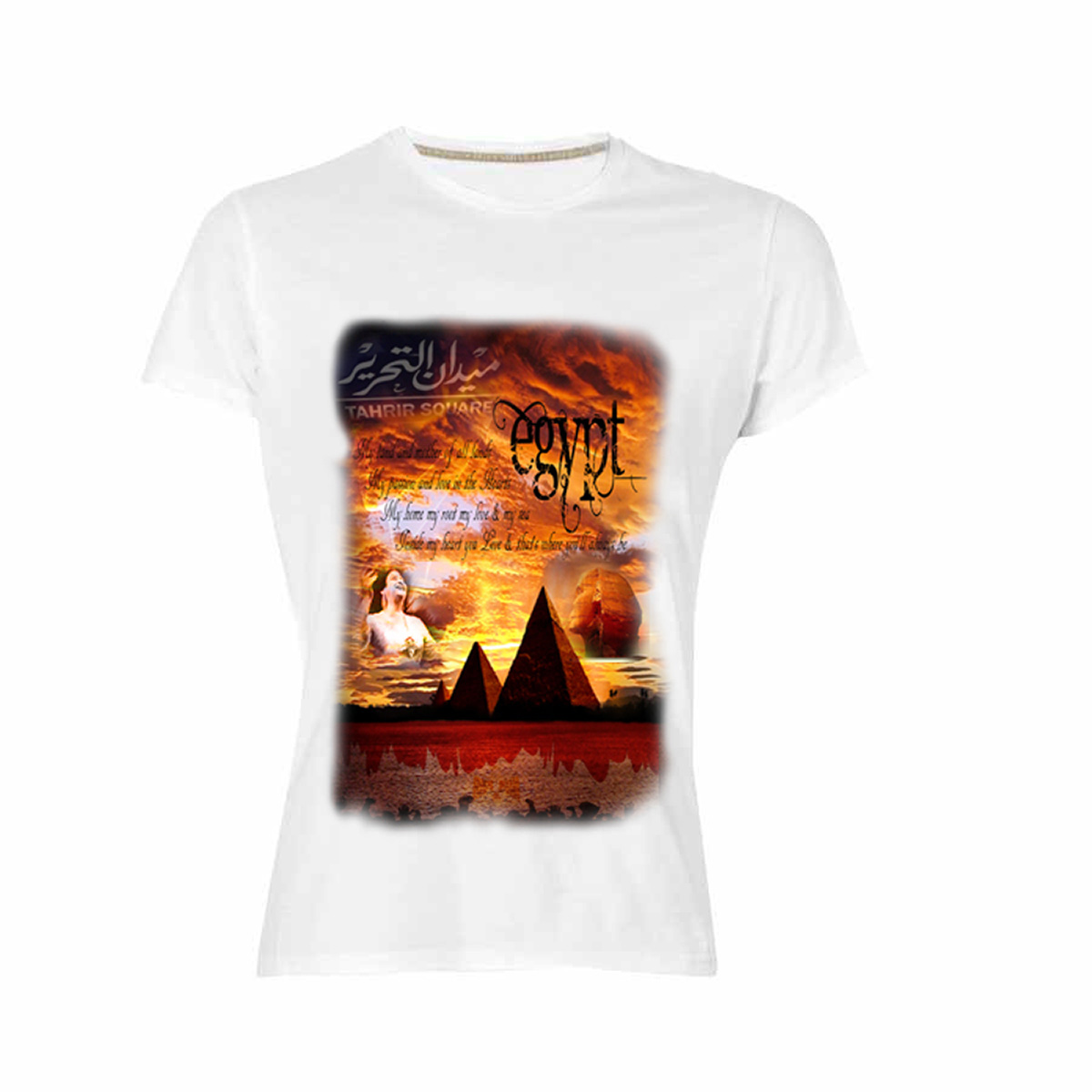
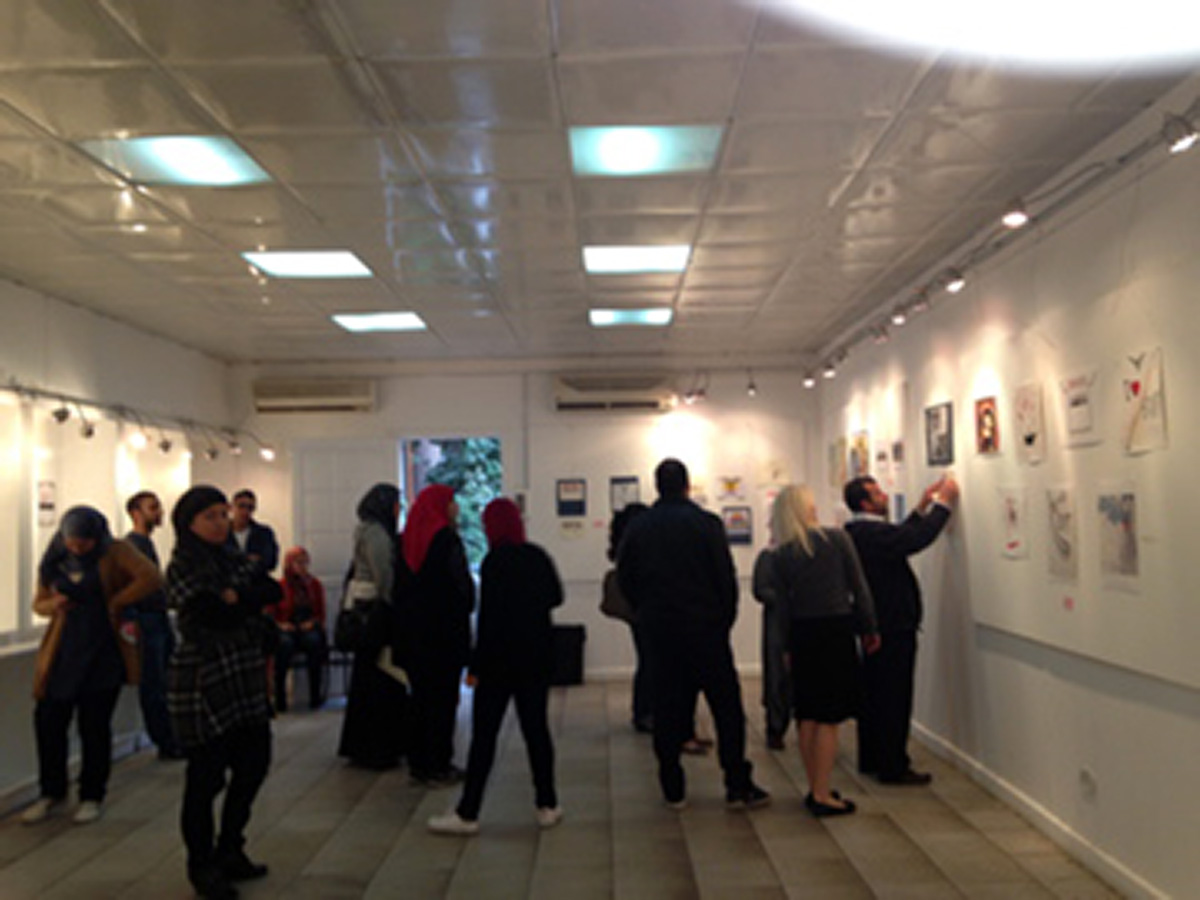
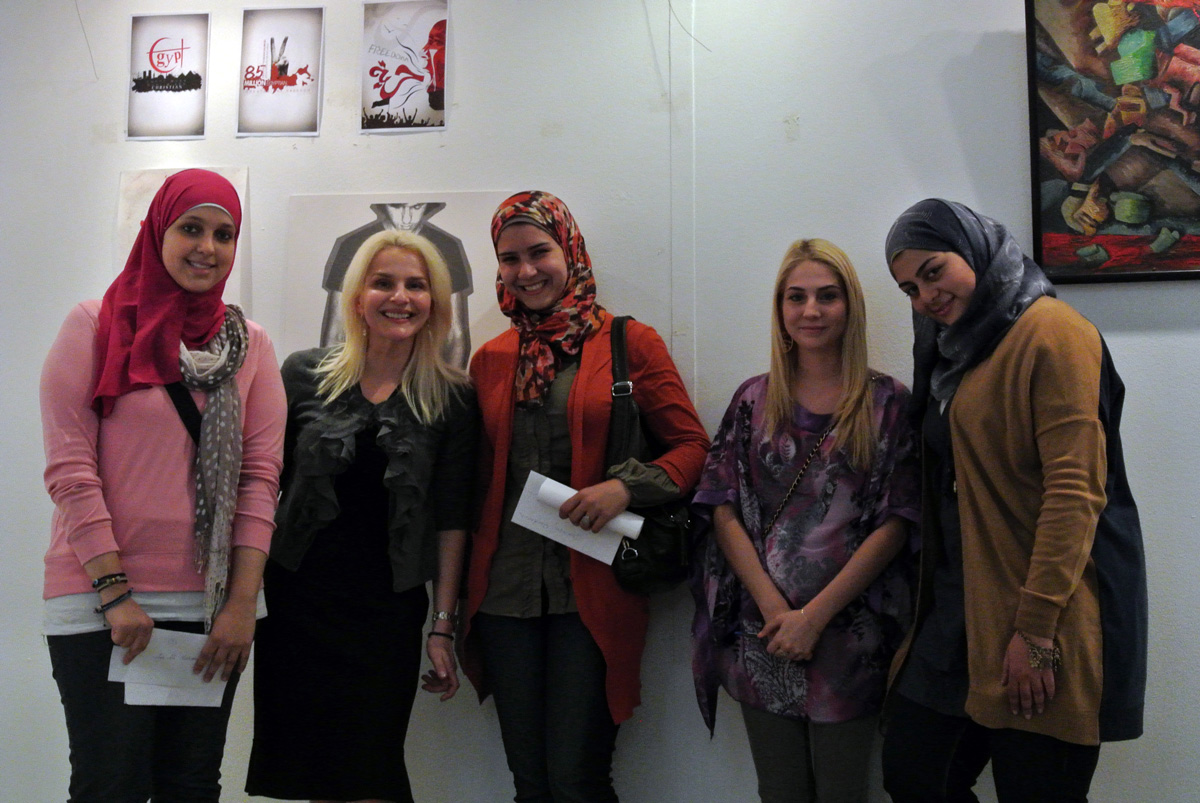

 The first winner
The first winner